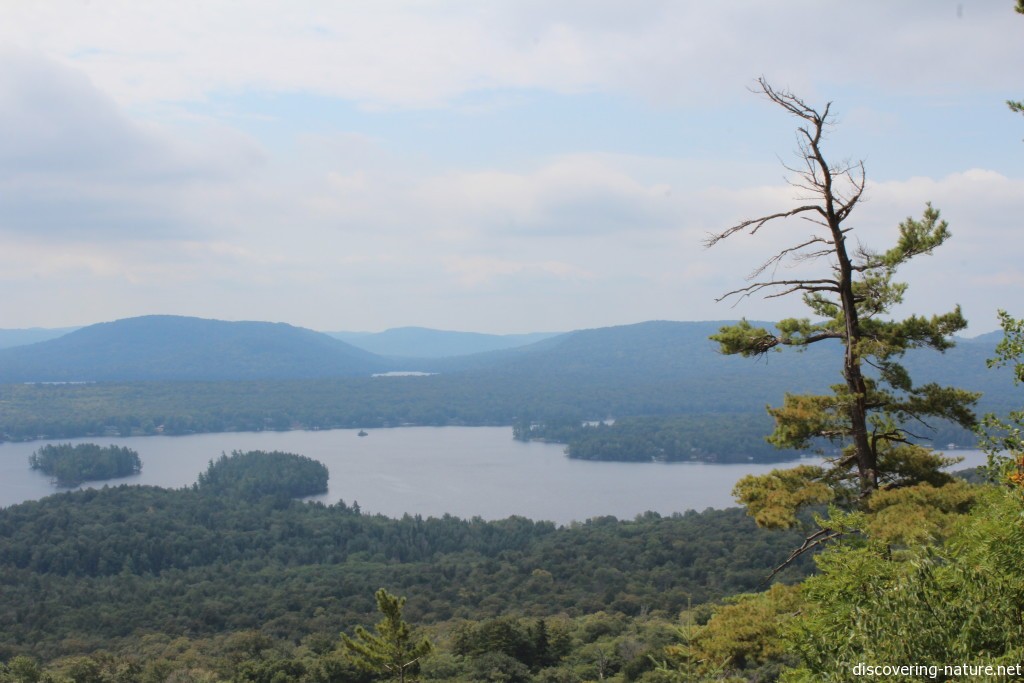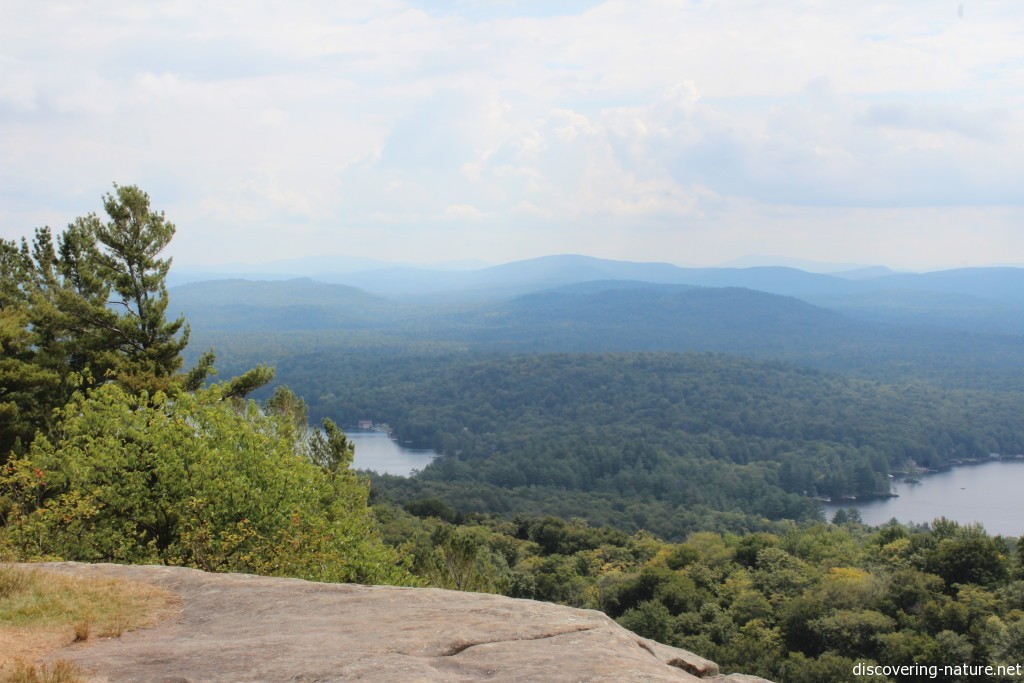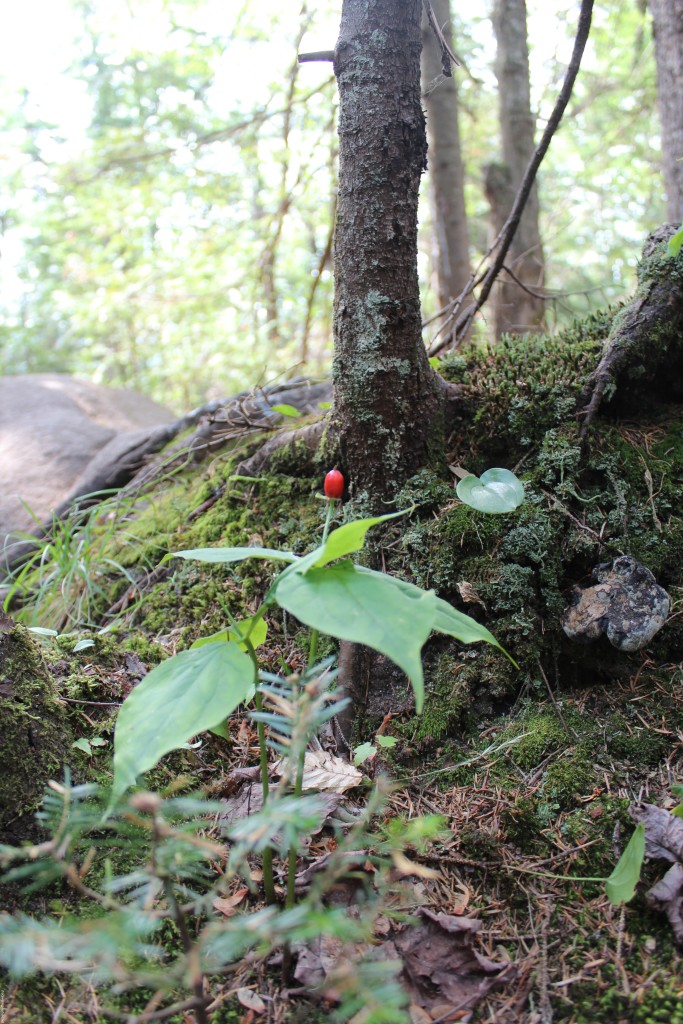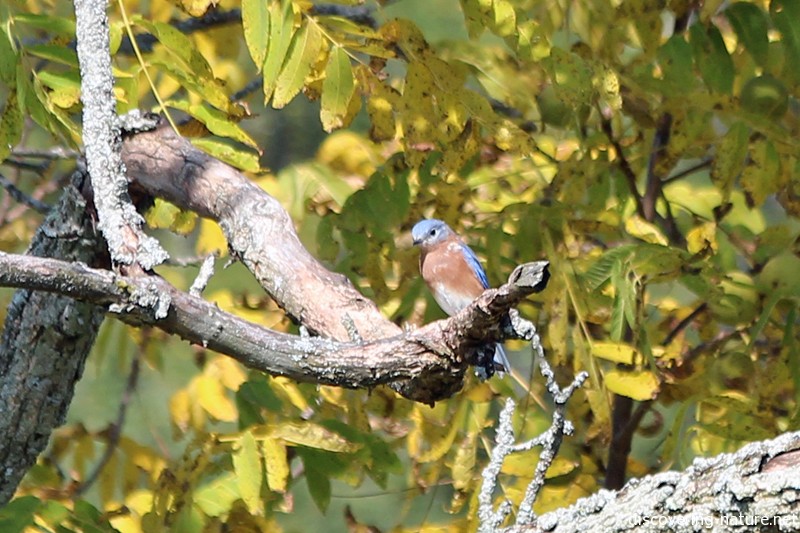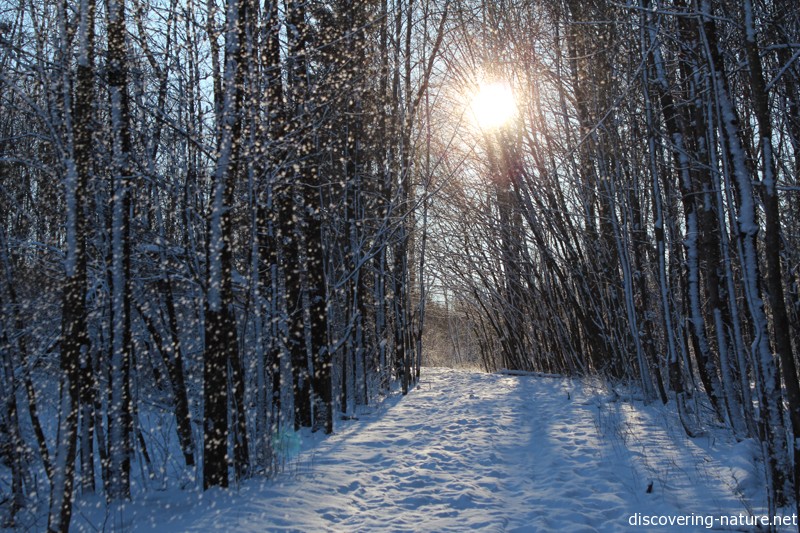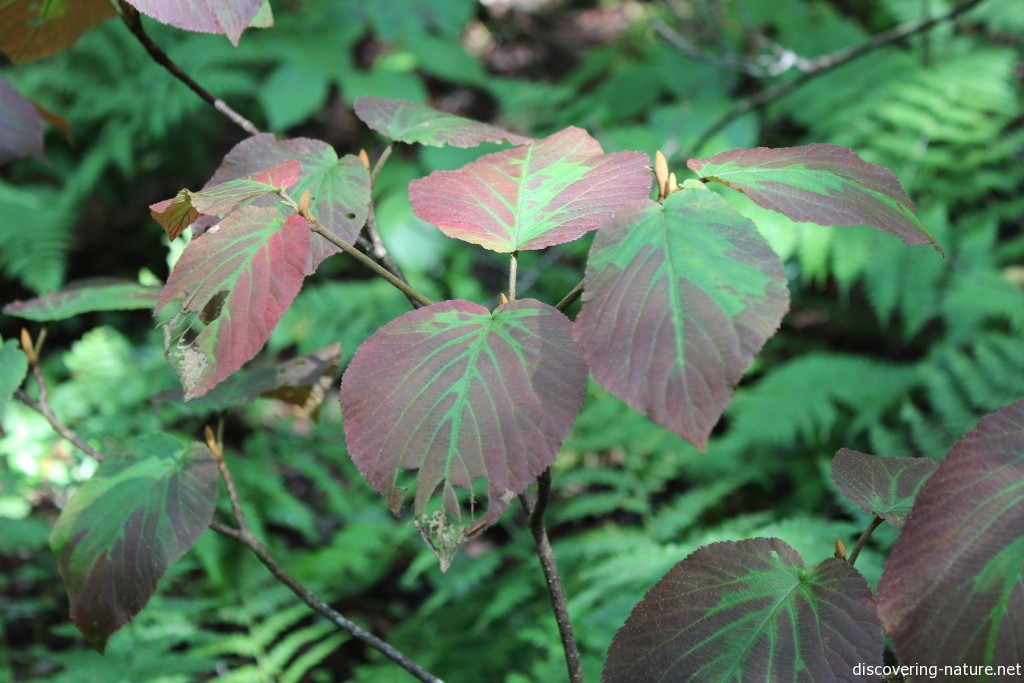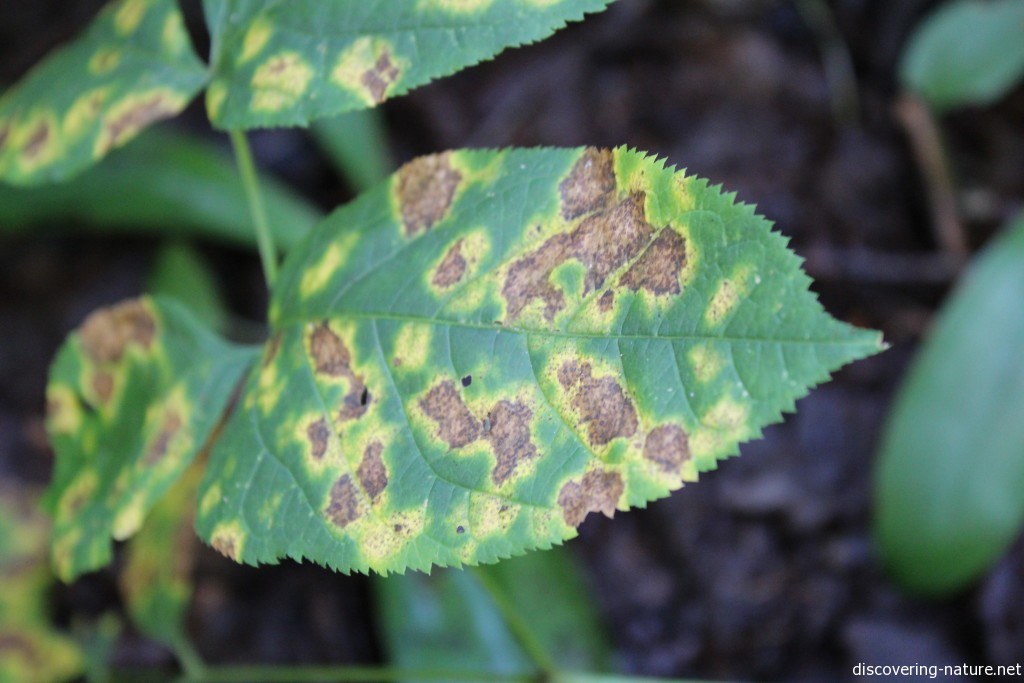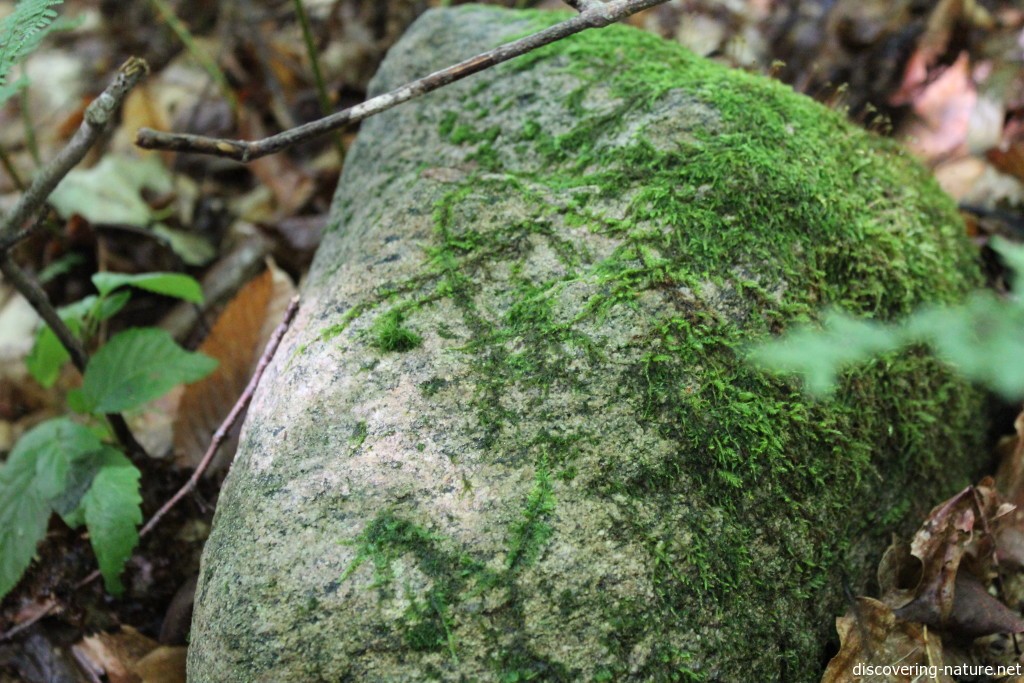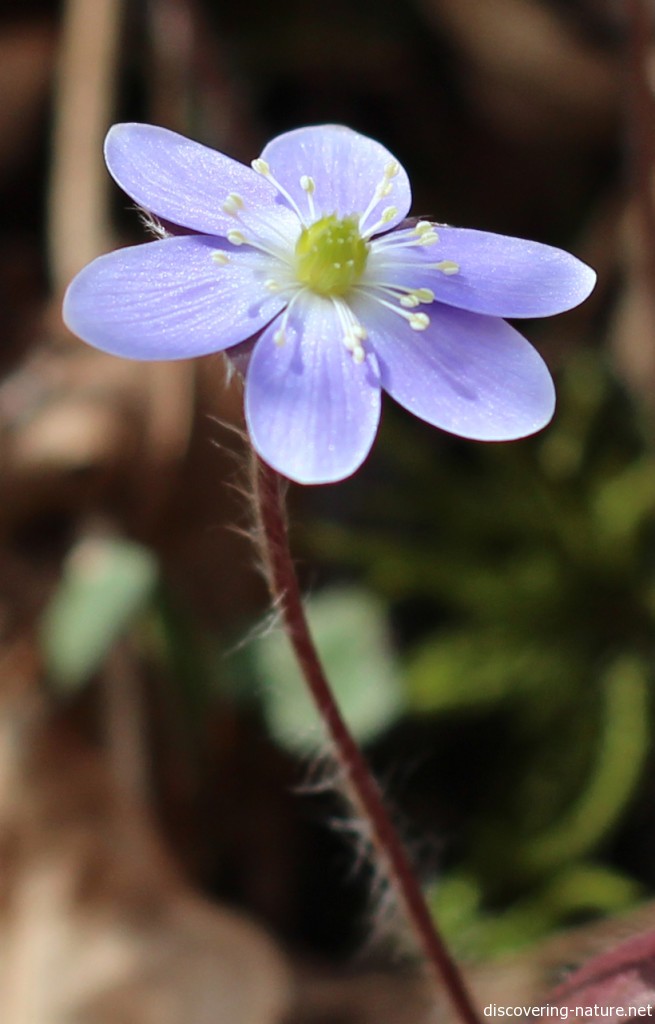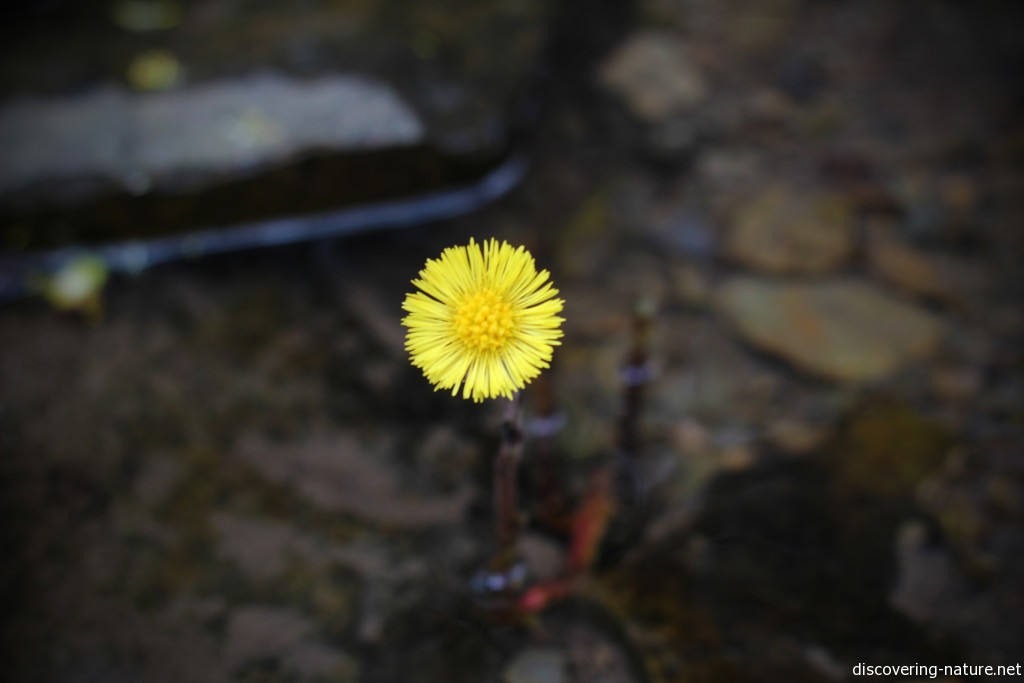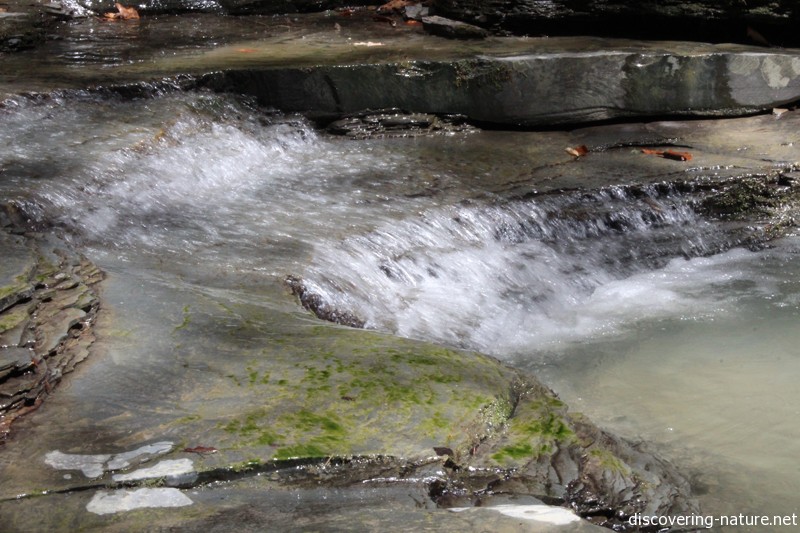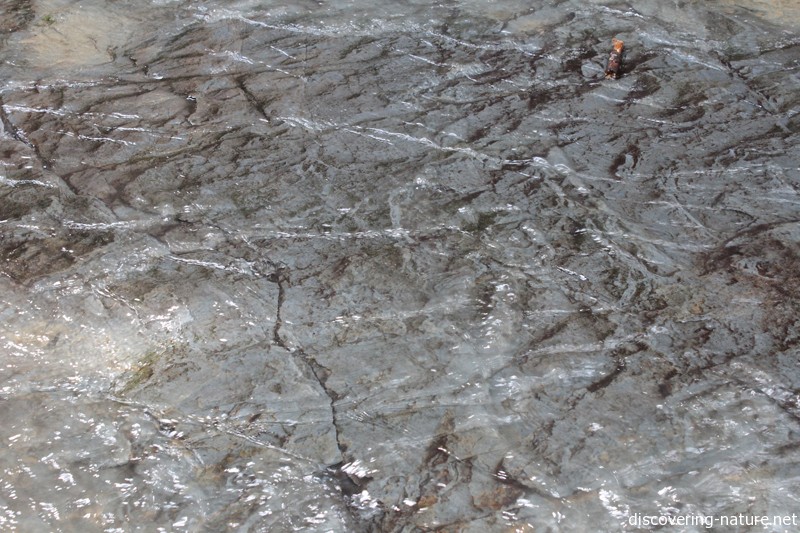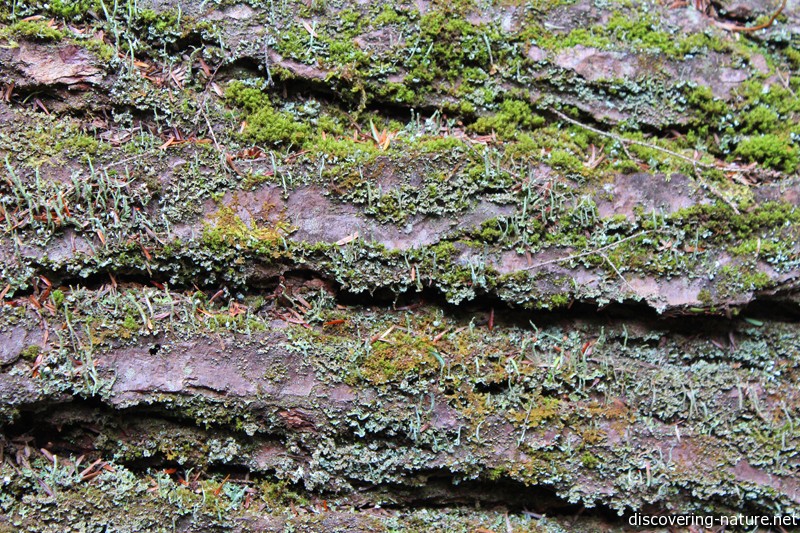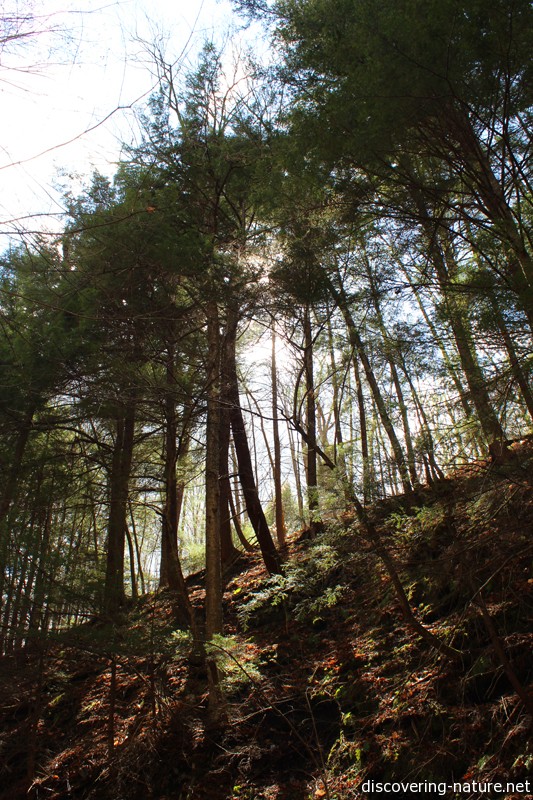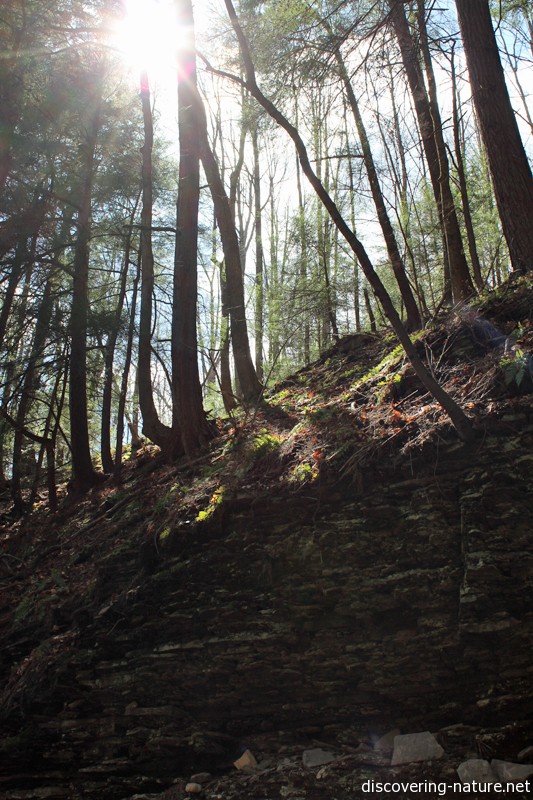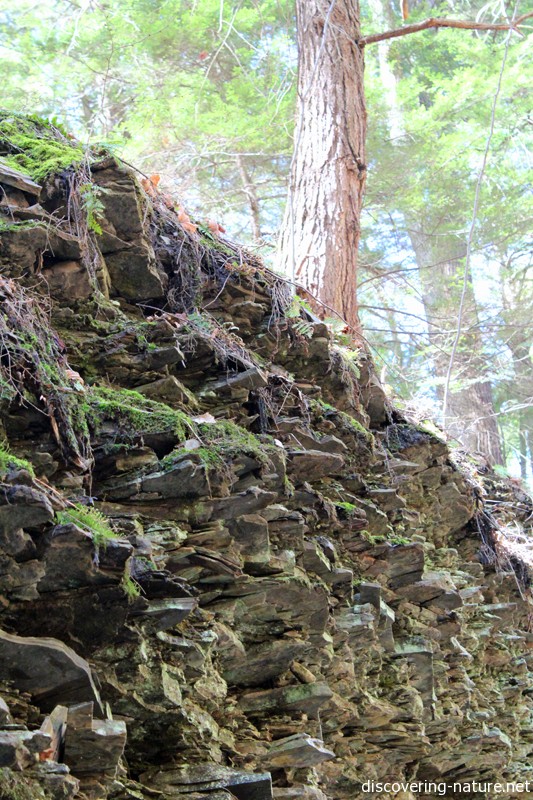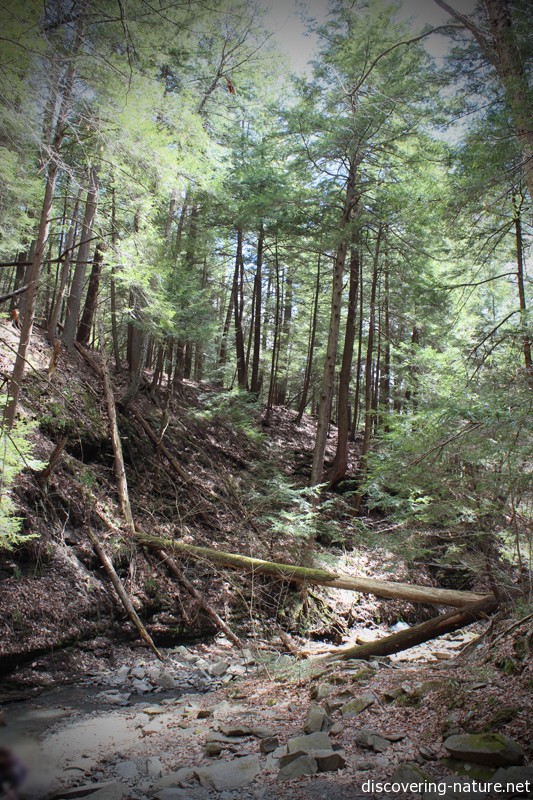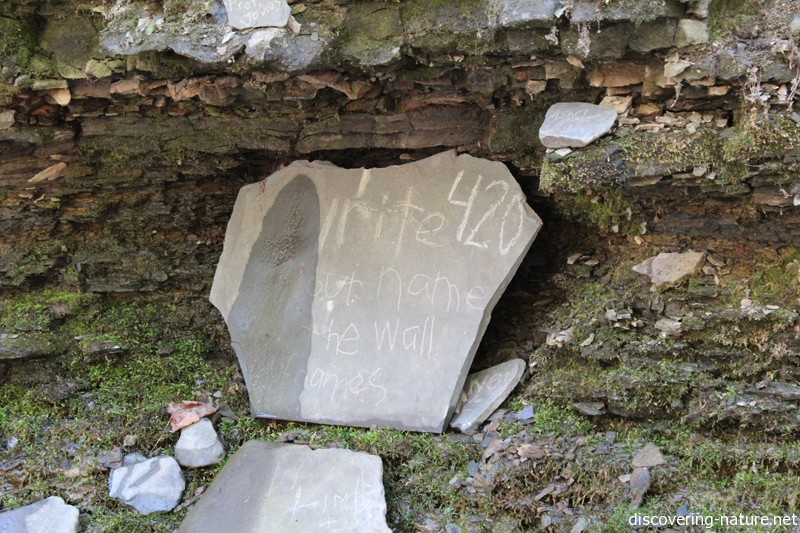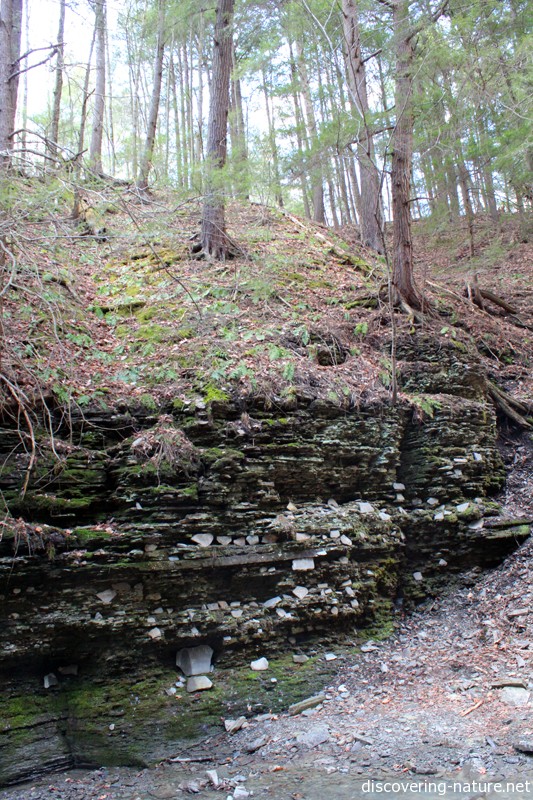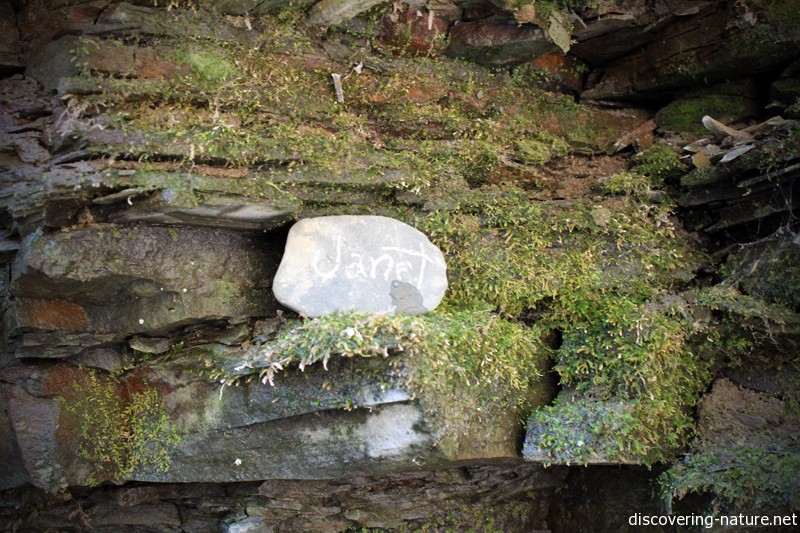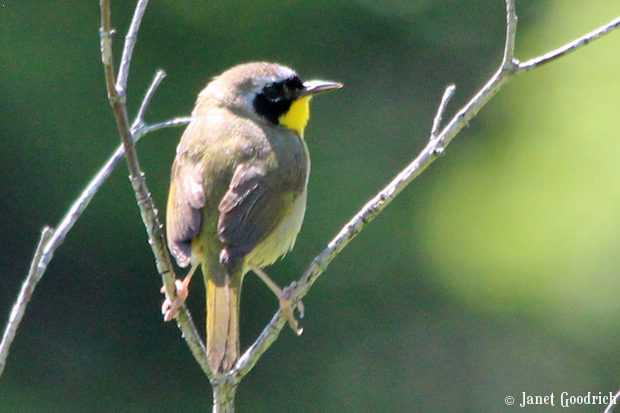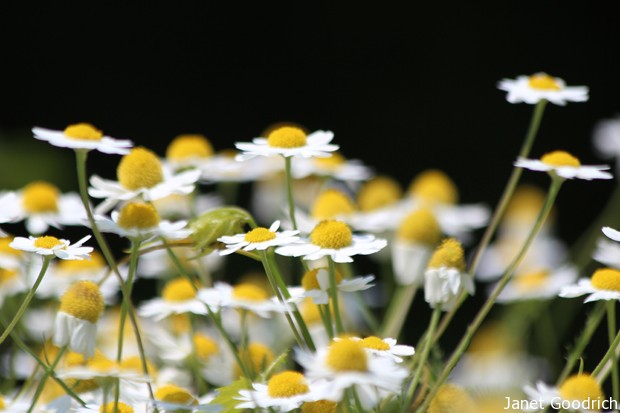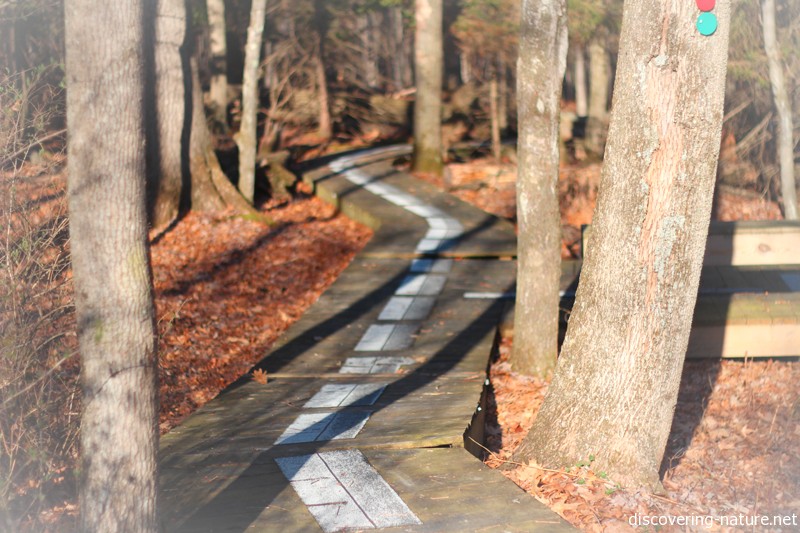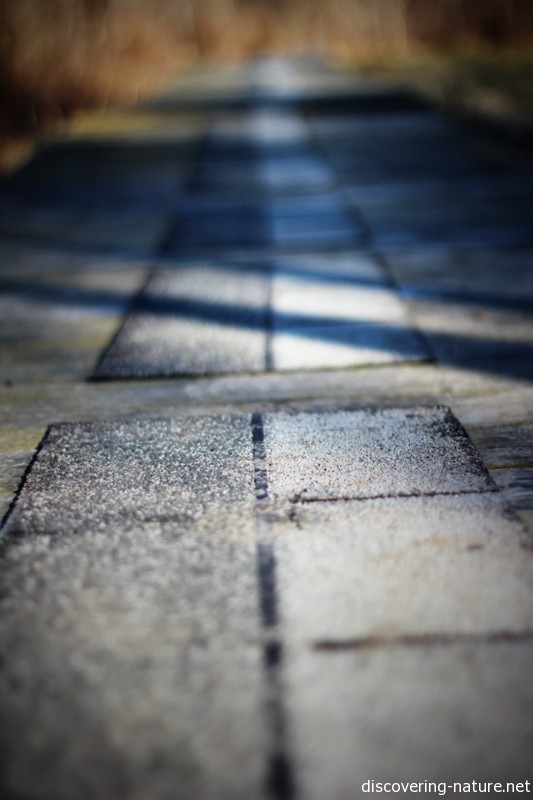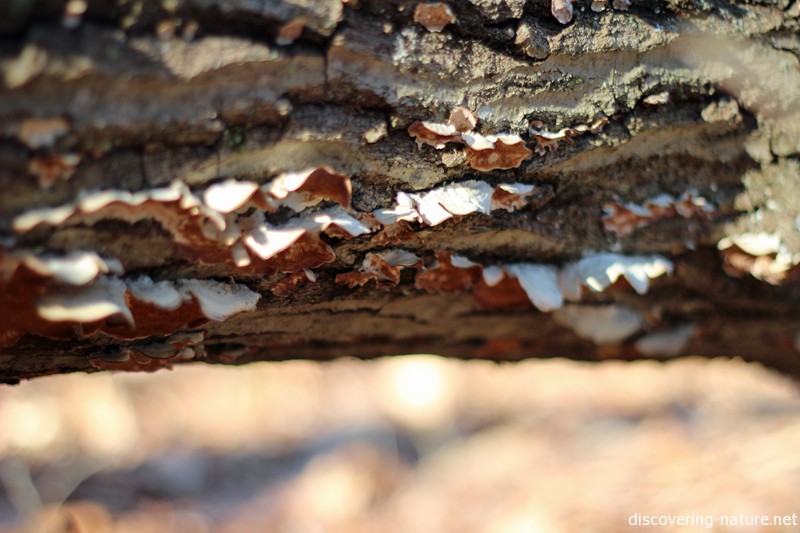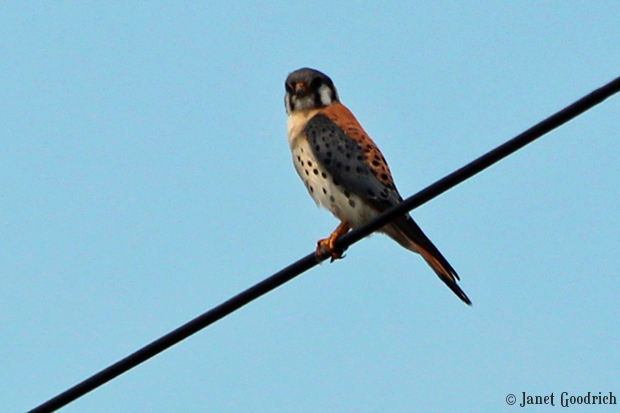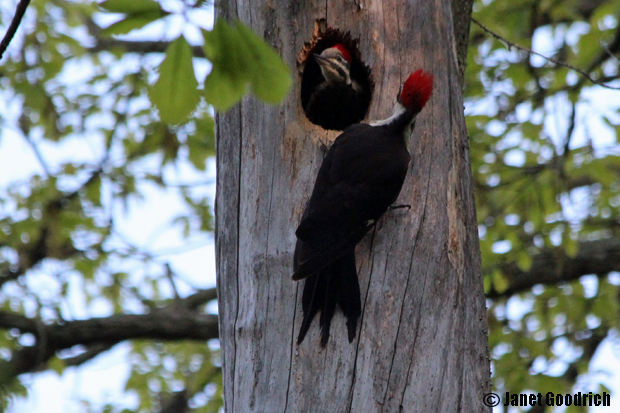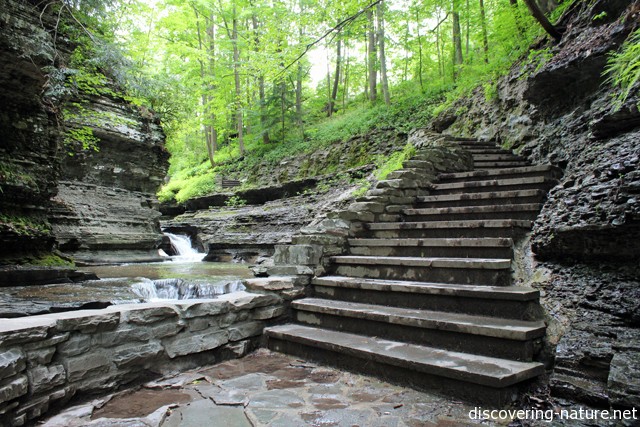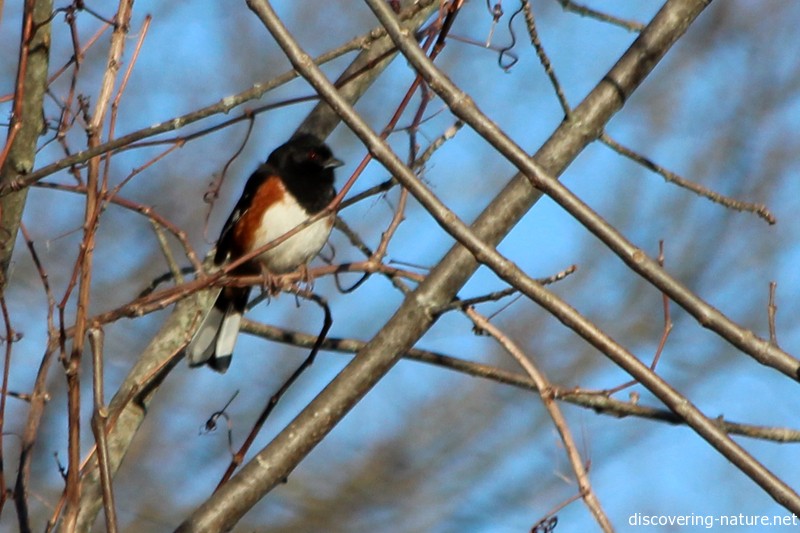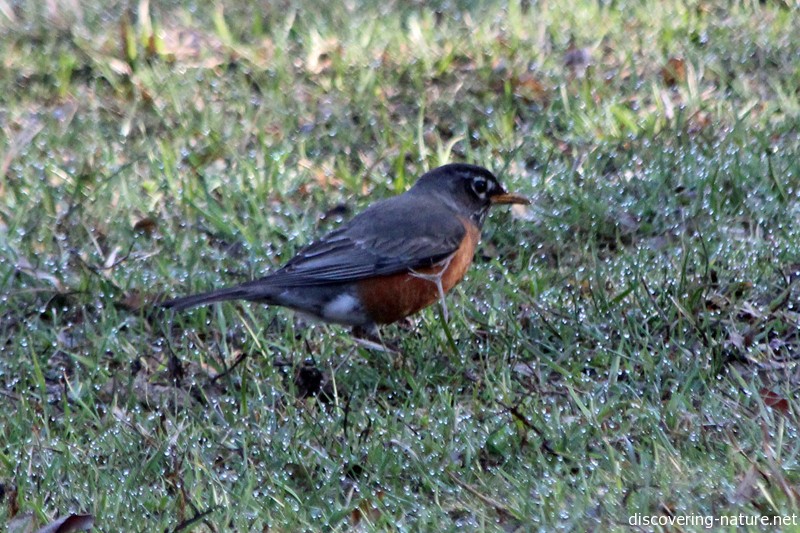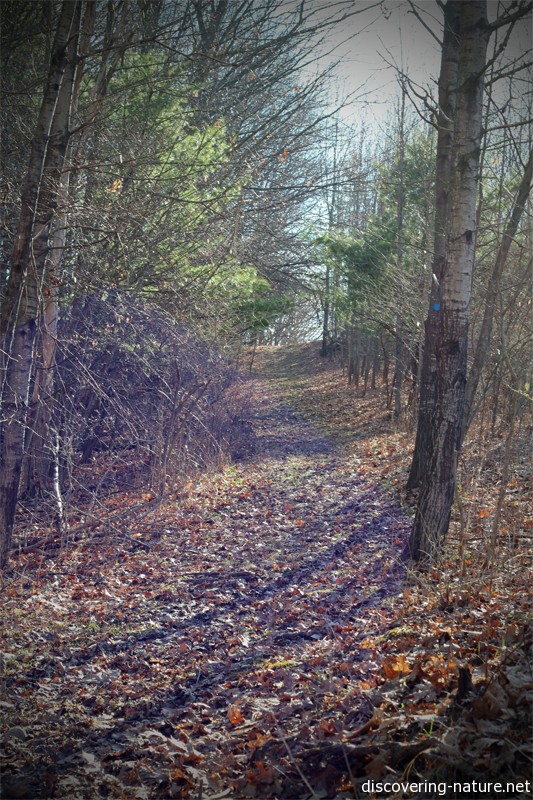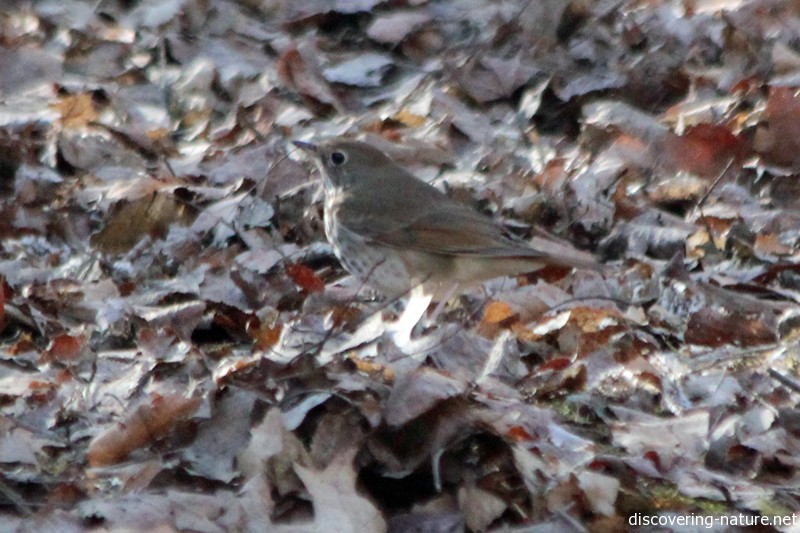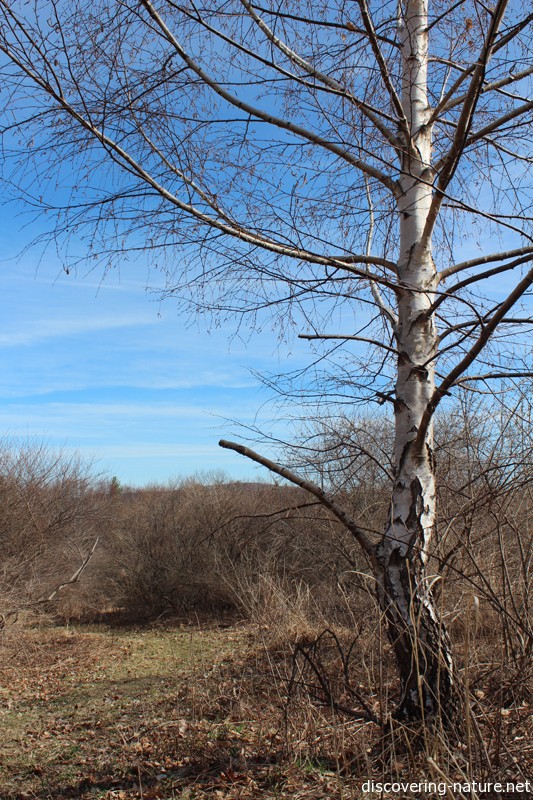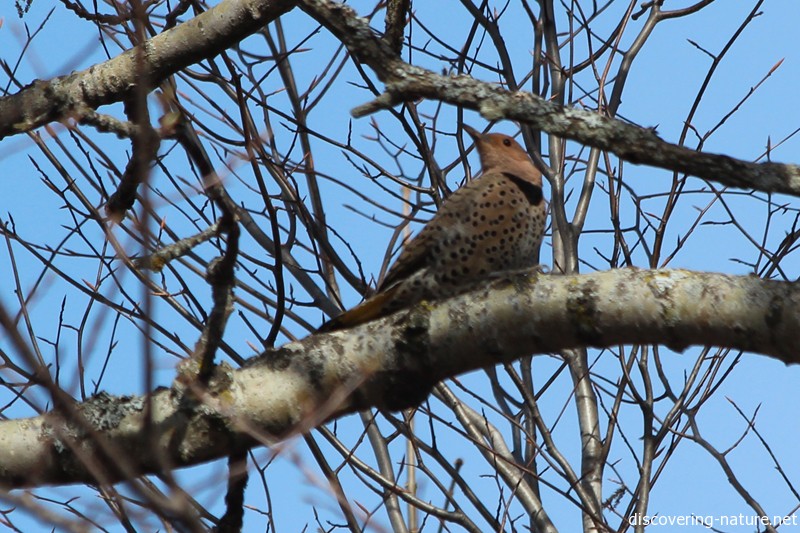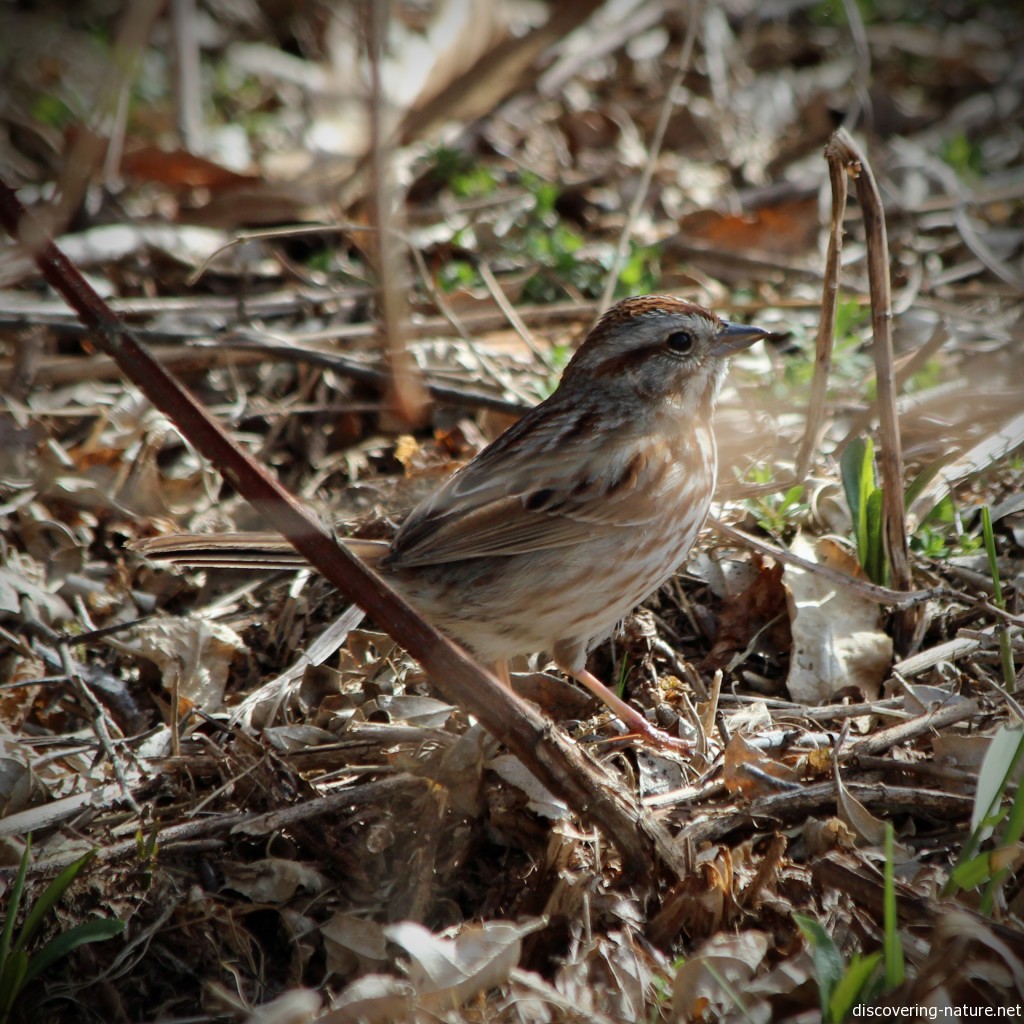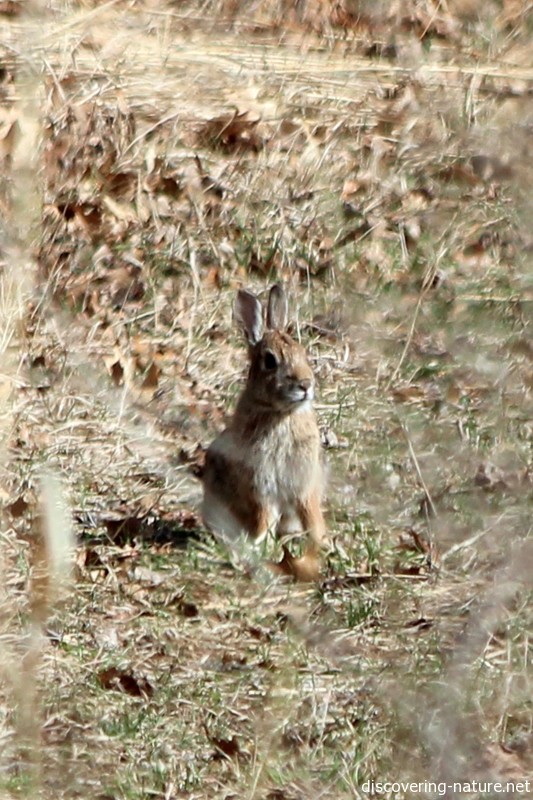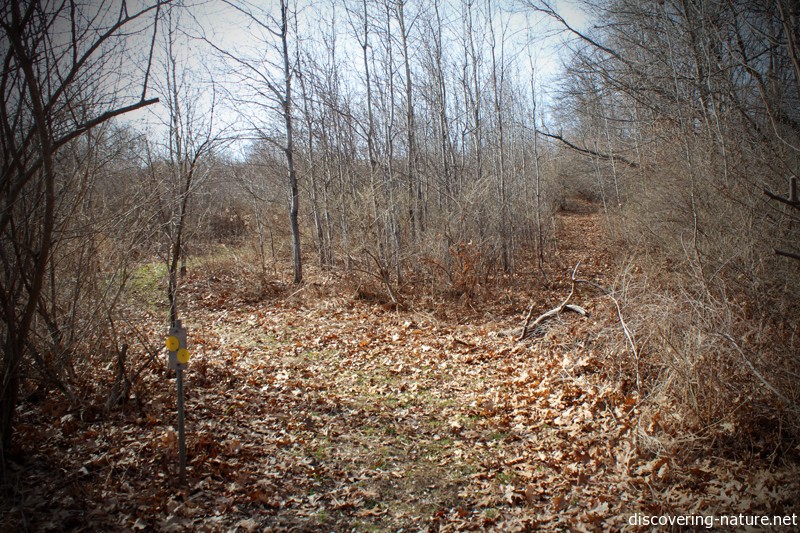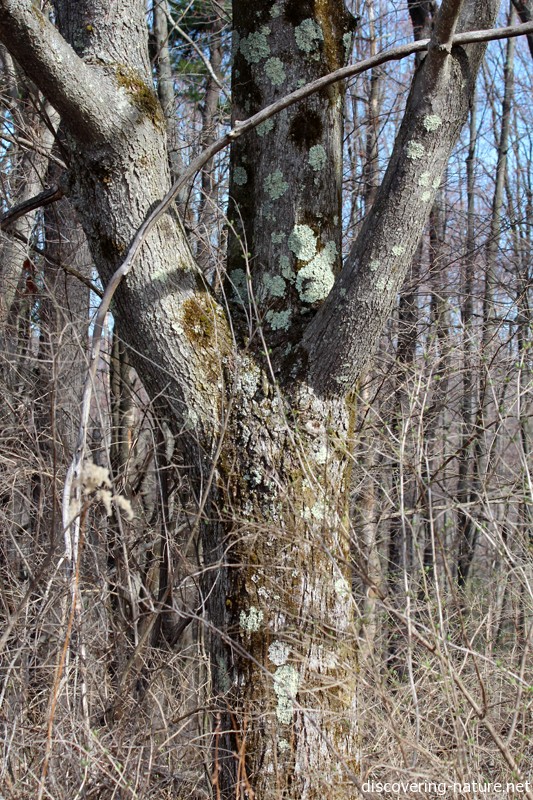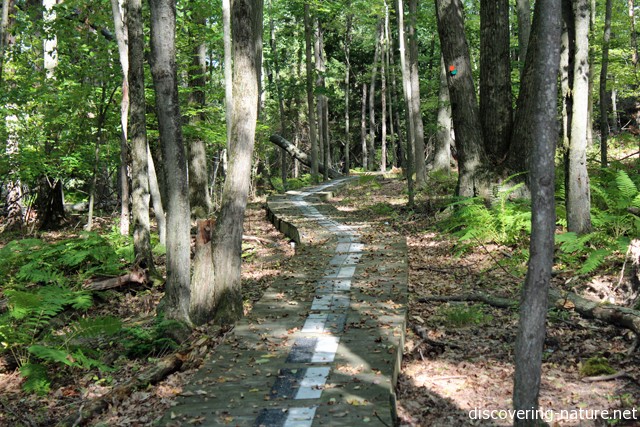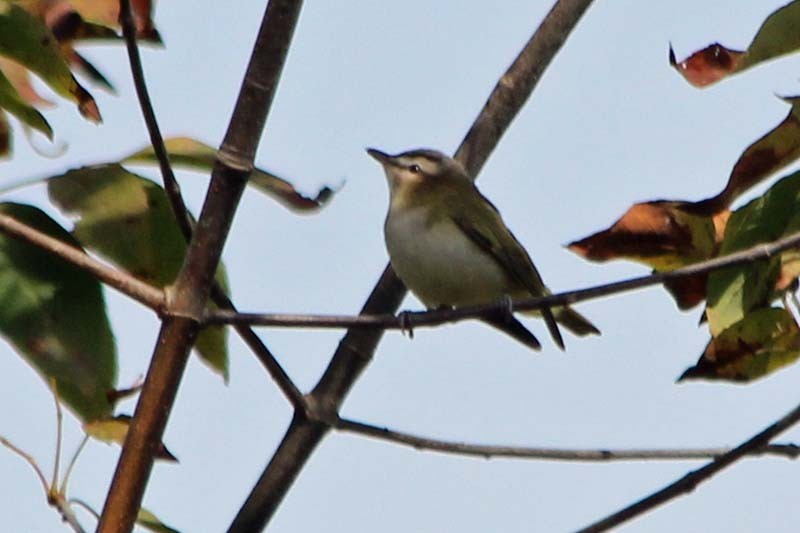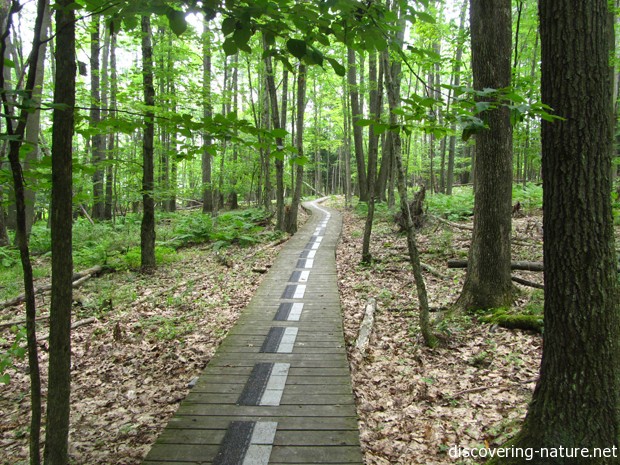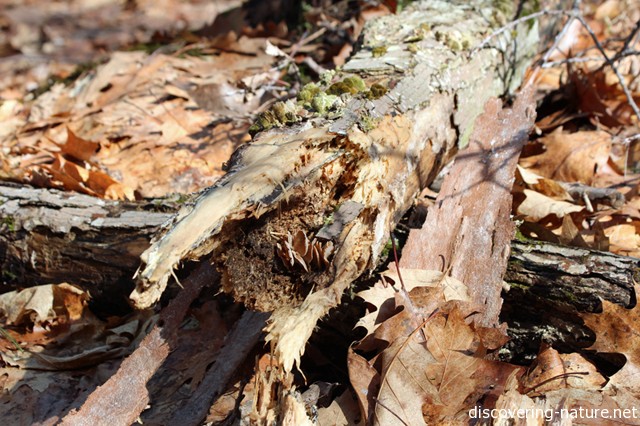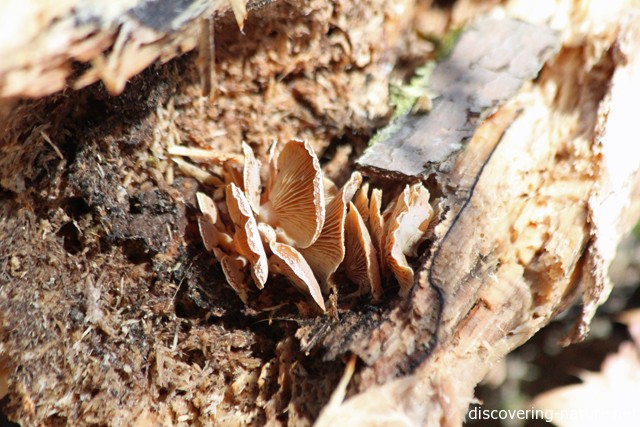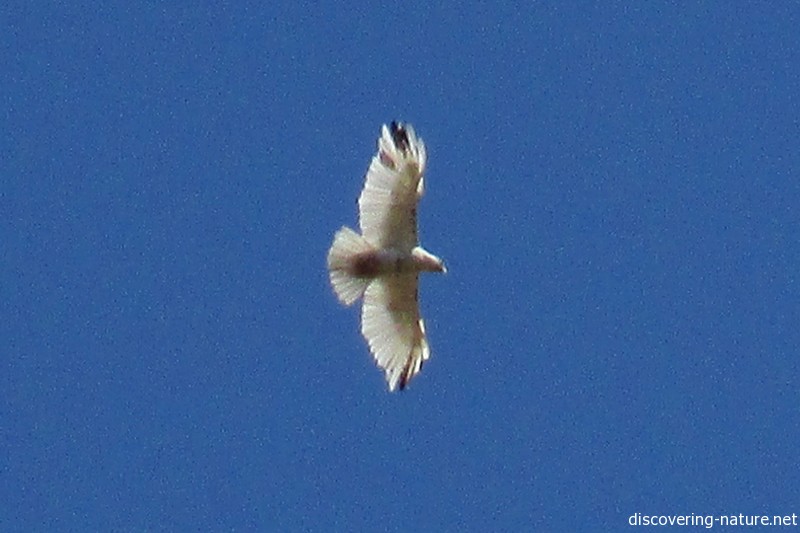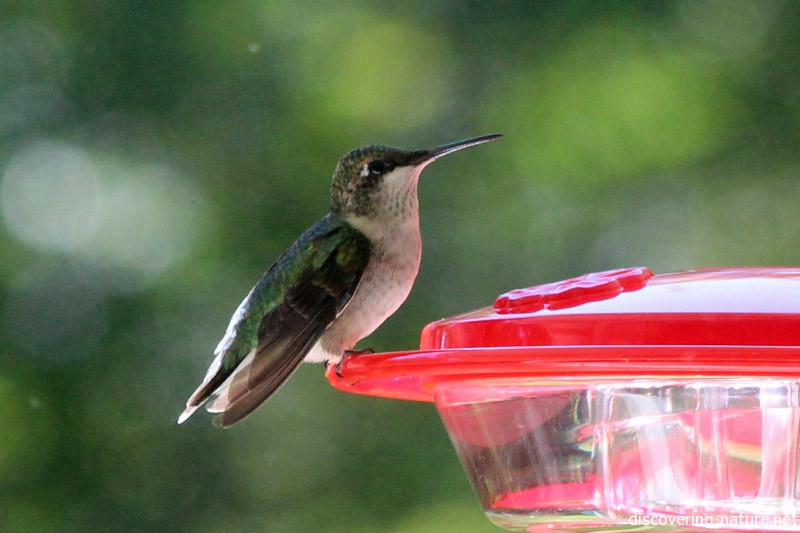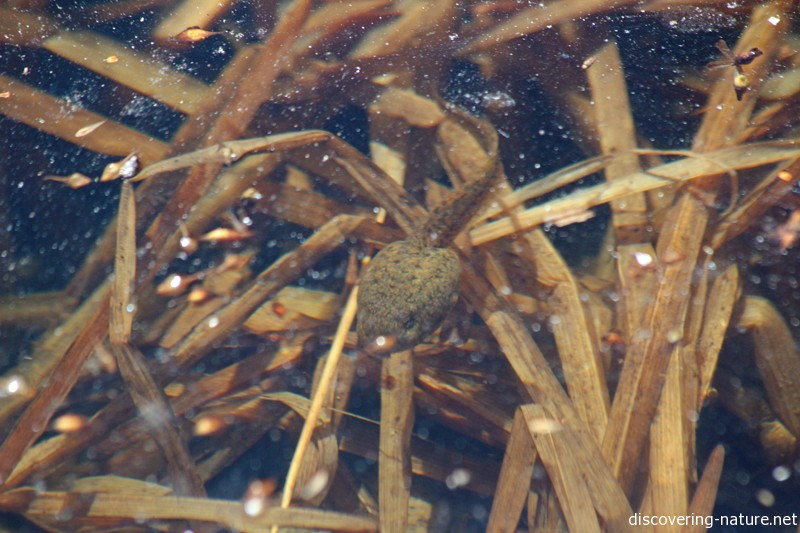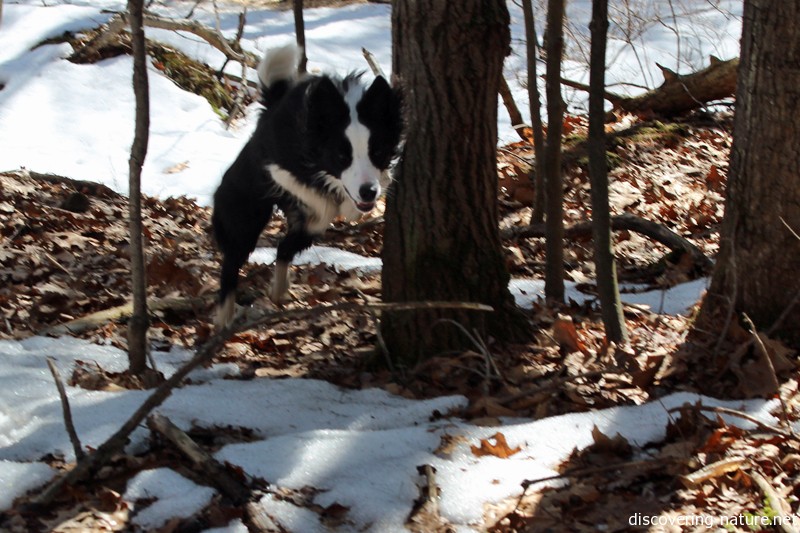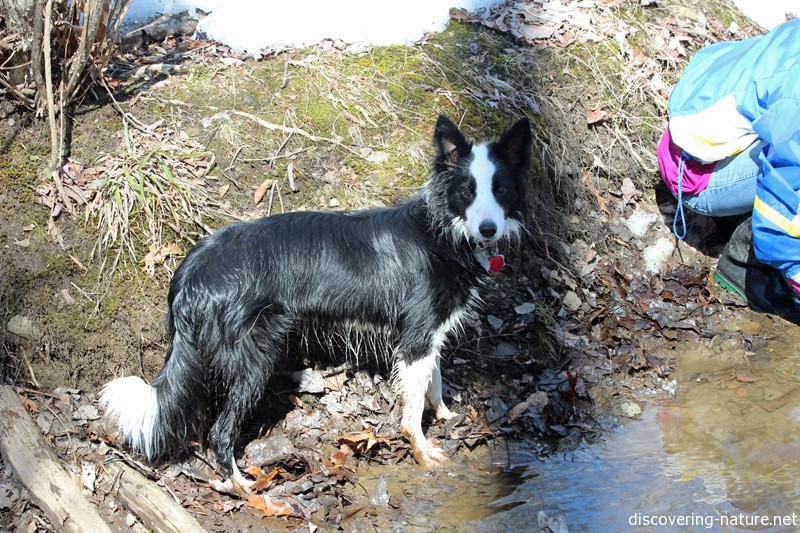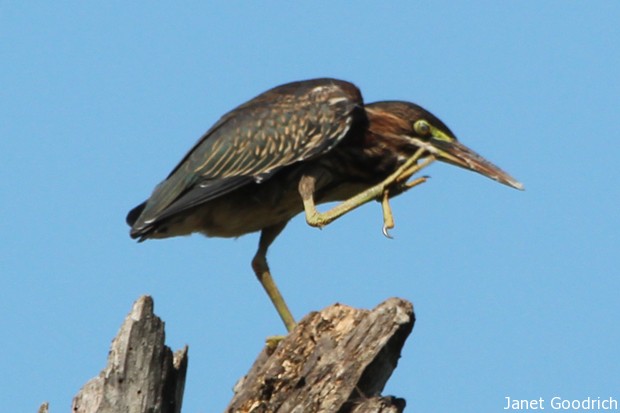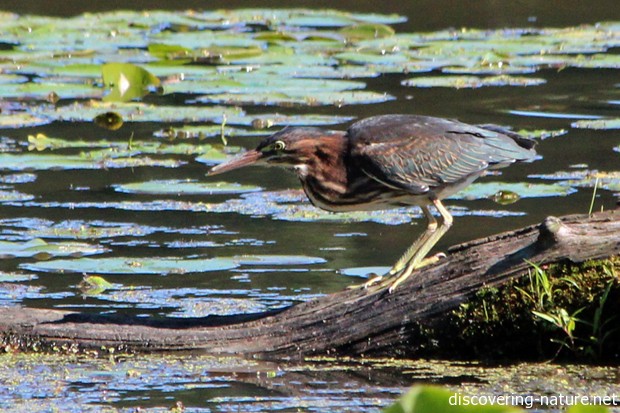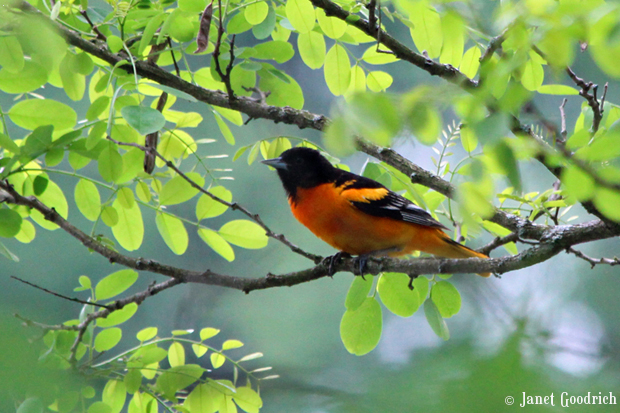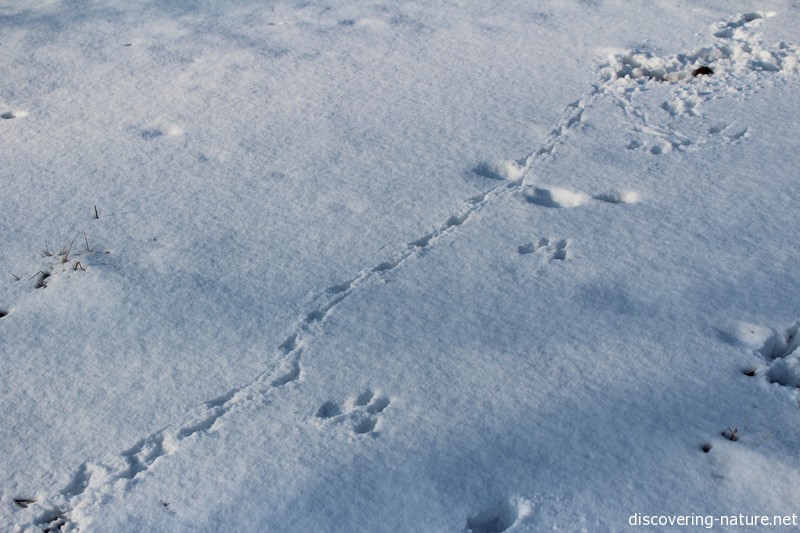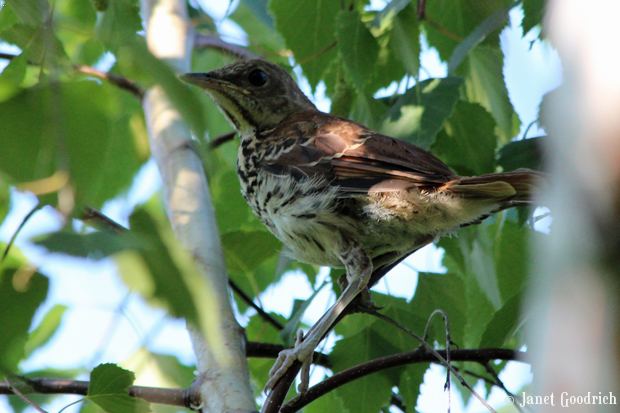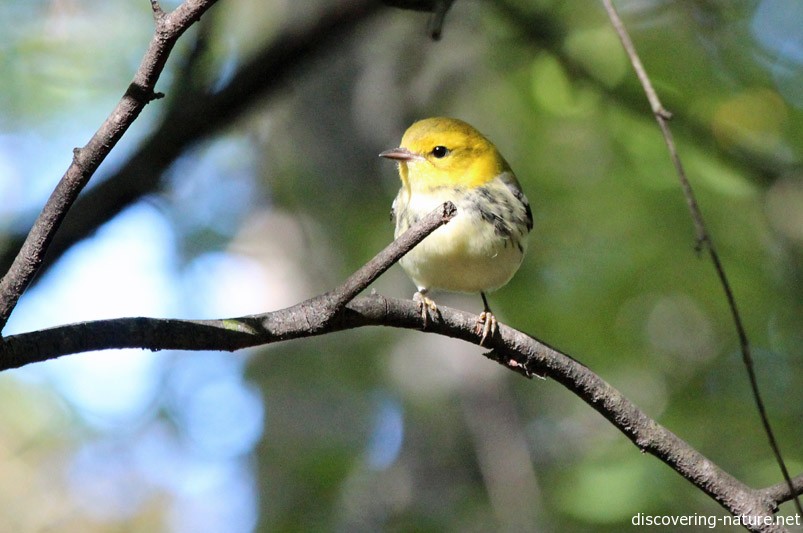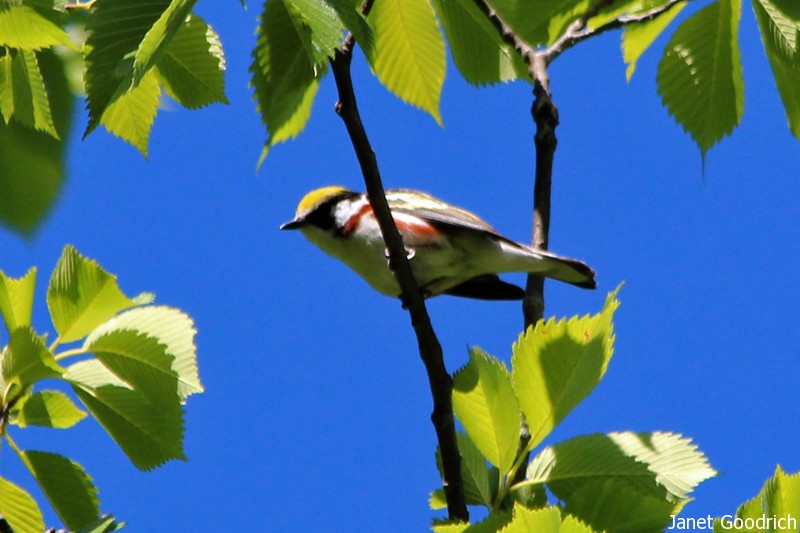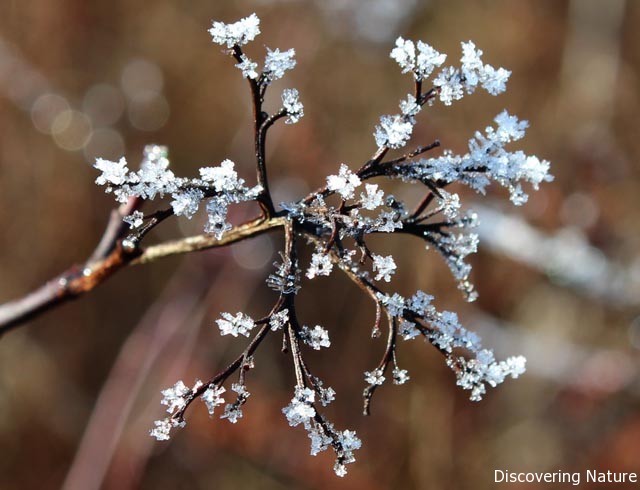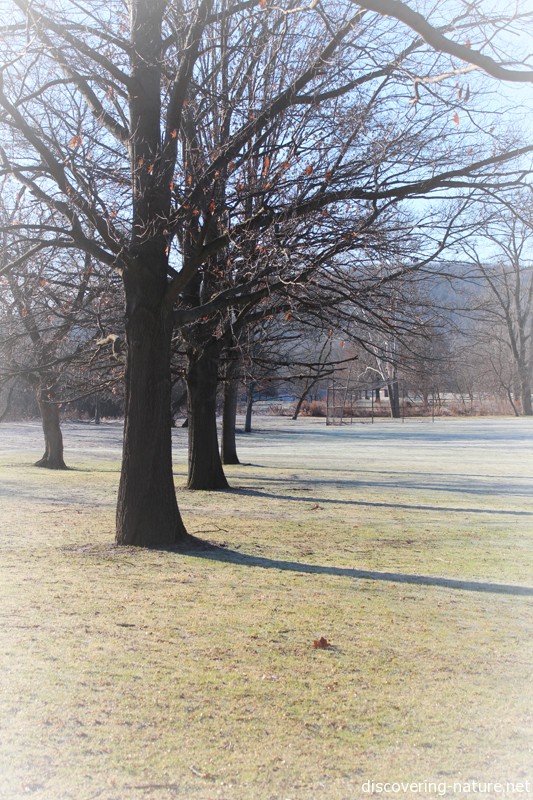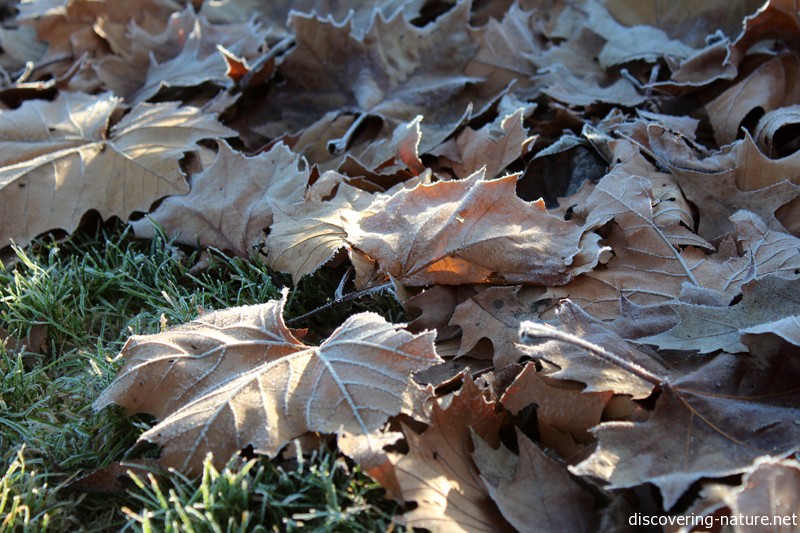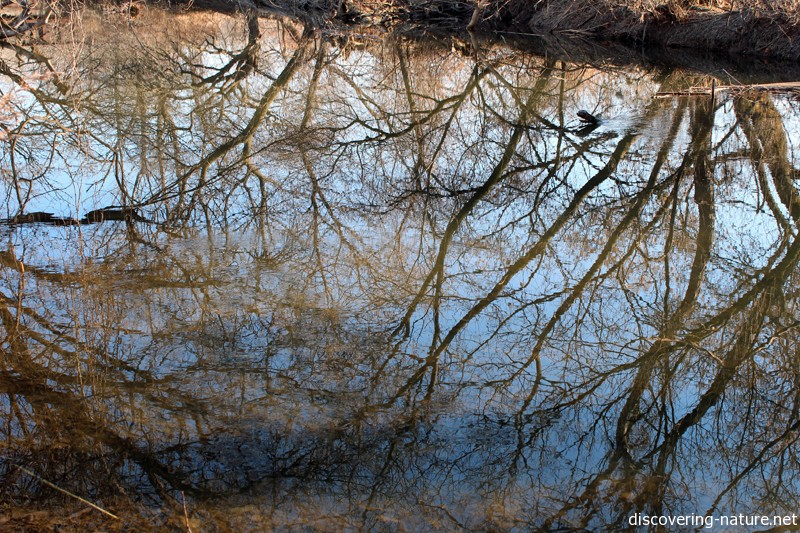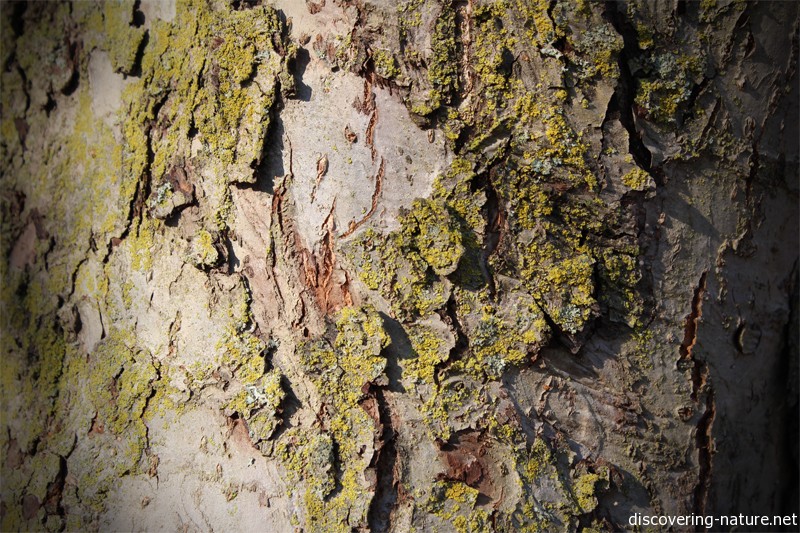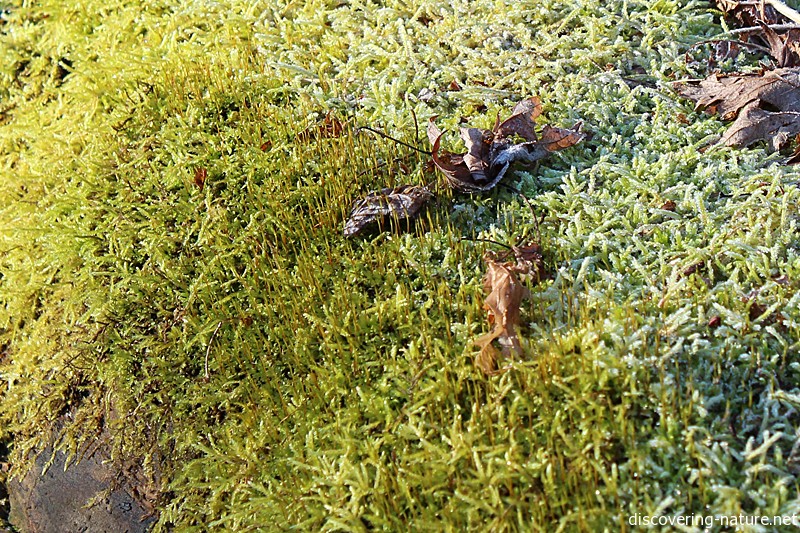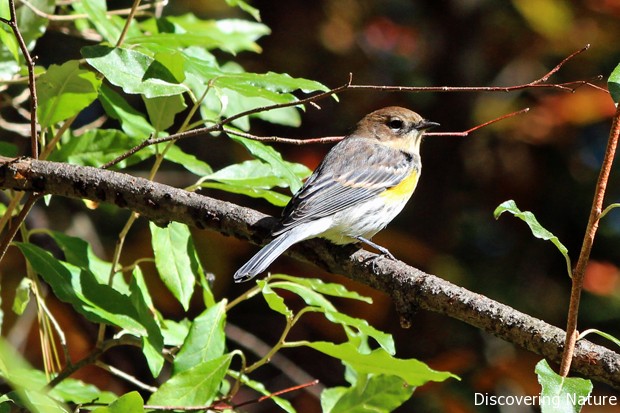Walks
-
Bald Mountain
Another place we visited on our Adirondack vacation was Bald Mountain. It was a popular place the day we were there! There is a fire tower on the granite crest of the hill that you can climb to look out over the Fulton Chain of lakes. I’ve climbed it in the past, but not this year — the nice solid ground provides a sufficient vantage point for me!
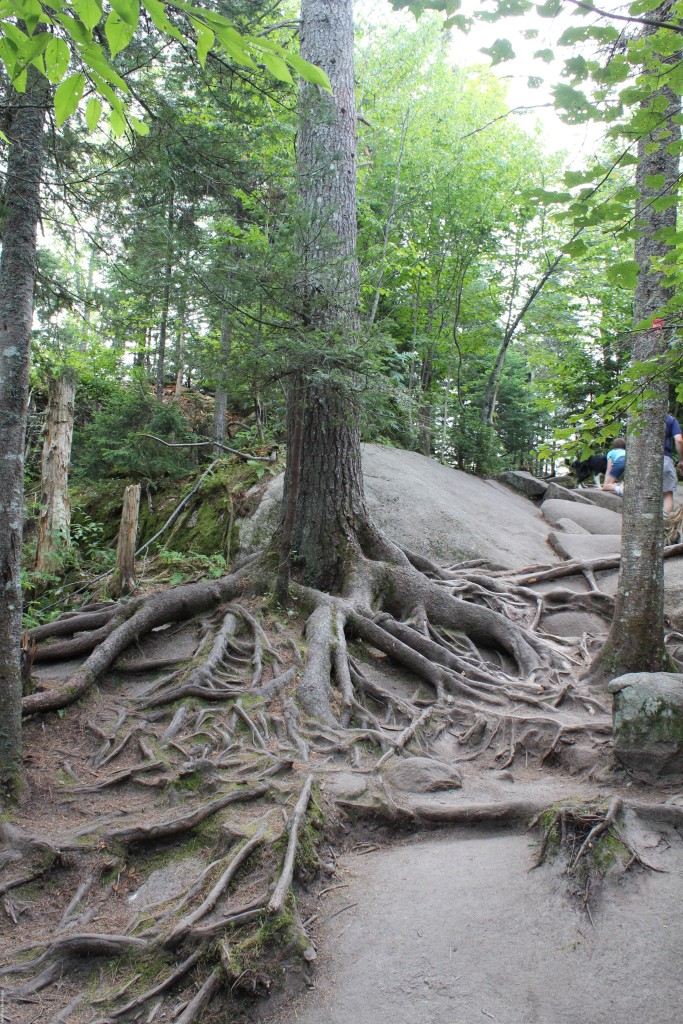
Bloom where you’re planted! 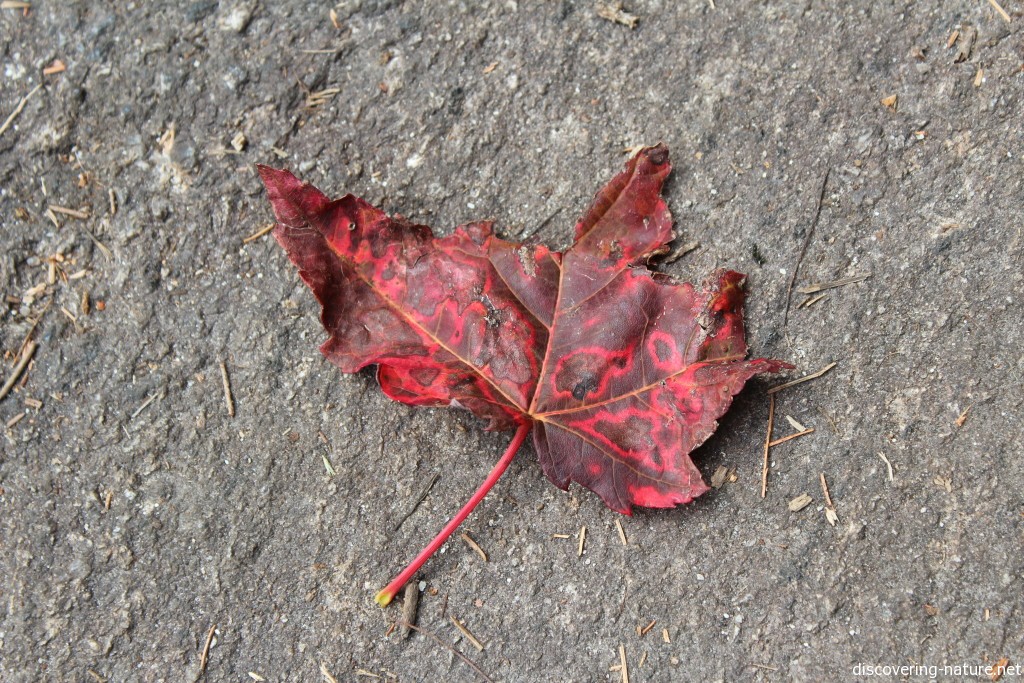
Touches of fall 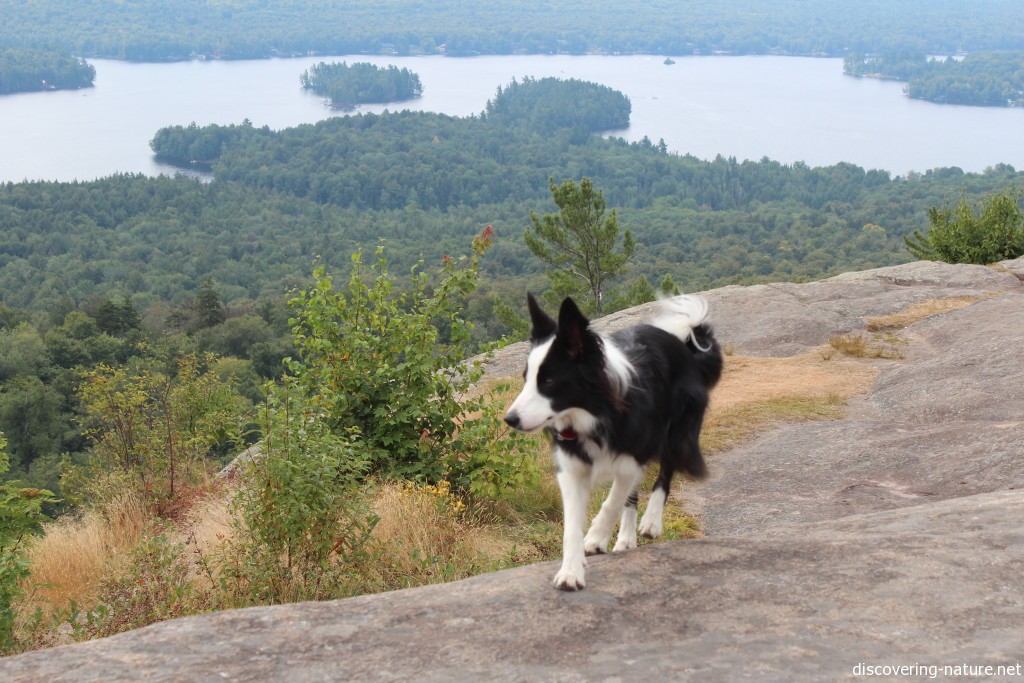
Our most sure-footed hiker -
Revisiting Ferd’s Bog
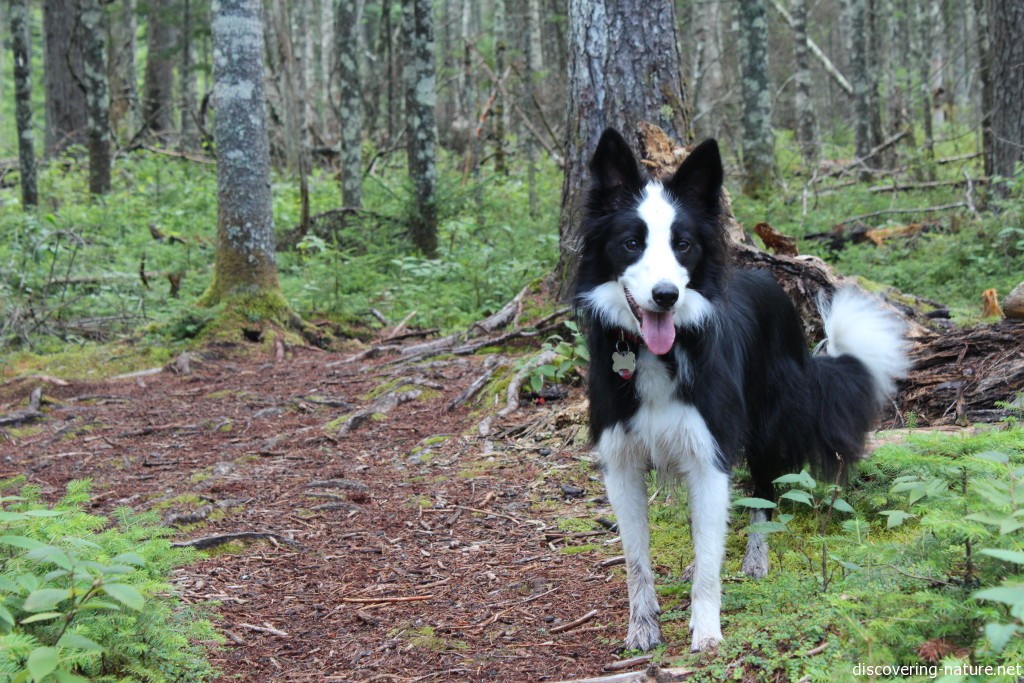
Lucy, our trusty hiking companion, urges us on One of the places I love to visit in the Adirondacks is Ferd’s Bog, a 50-acre tract of boreal forest surrounding a black spruce bog. I first visited it in 2011, and the bog was filled with pitcher plants; I posted a picture of them here, at my other blog. I haven’t seen the pitcher plants for the last three years, though, and I suspect that people may be venturing off the boardwalk (judging from the many trampled trails I saw into the grasses) and taking them. It’s both foolish (since they won’t grow anywhere else — they grow in the bog because it’s acidic) and selfish (since it alters the ecosystem, prevents others from experiencing it, and even breaks the law by taking plants from a protected area). I hate to sound so negative, but it’s sad to see. I’m not sure whether the process can be reversed or not.
Nevertheless, the walk through the woods into the bog retains its primeval character. There are apparently many interesting birds that inhabit the area, but I haven’t seen any of them: gray jays, boreal chickadees, black-backed and three-toed woodpeckers, for example. But the many plants, trees and mosses always grab my attention and make the walk seem magical.
Here are a few pics from my most recent foray in.
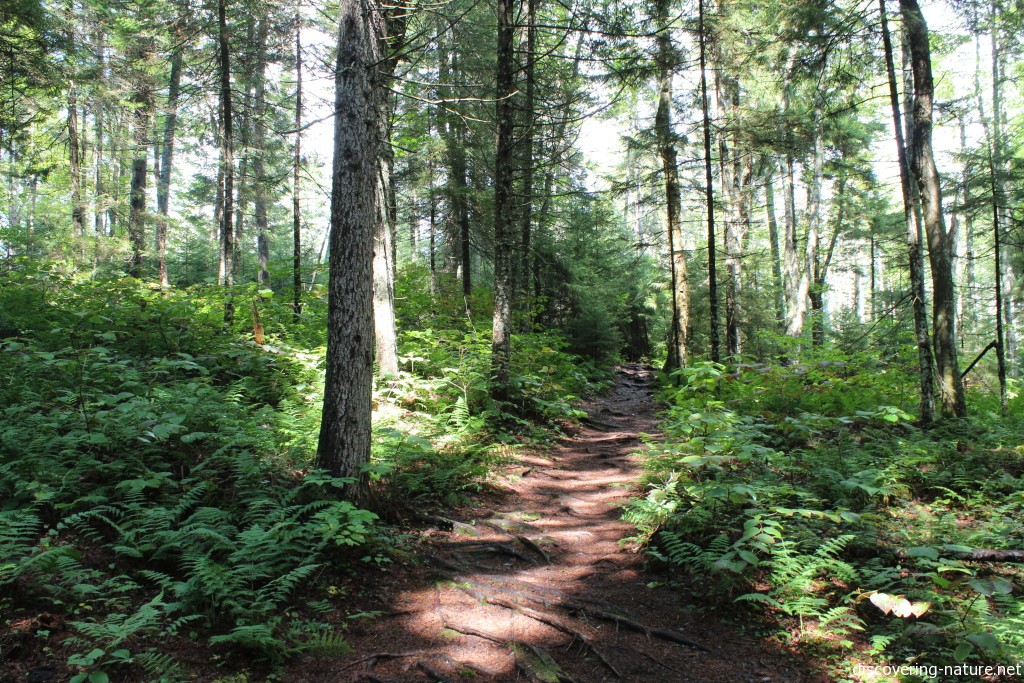
Trail 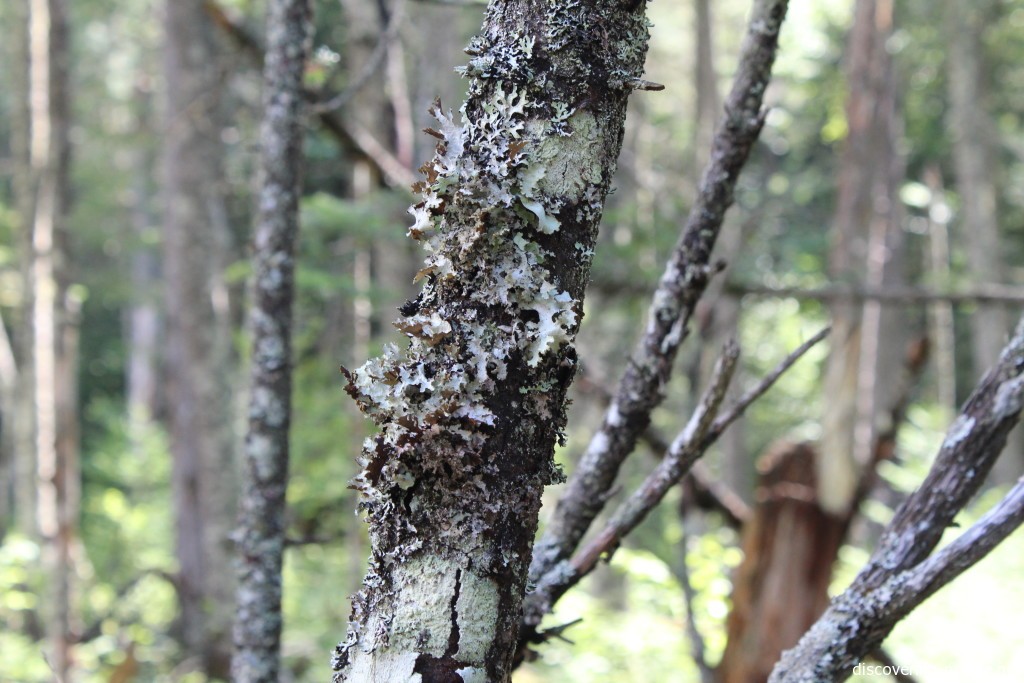
Lichen 
You descend into the bog — and climb back out 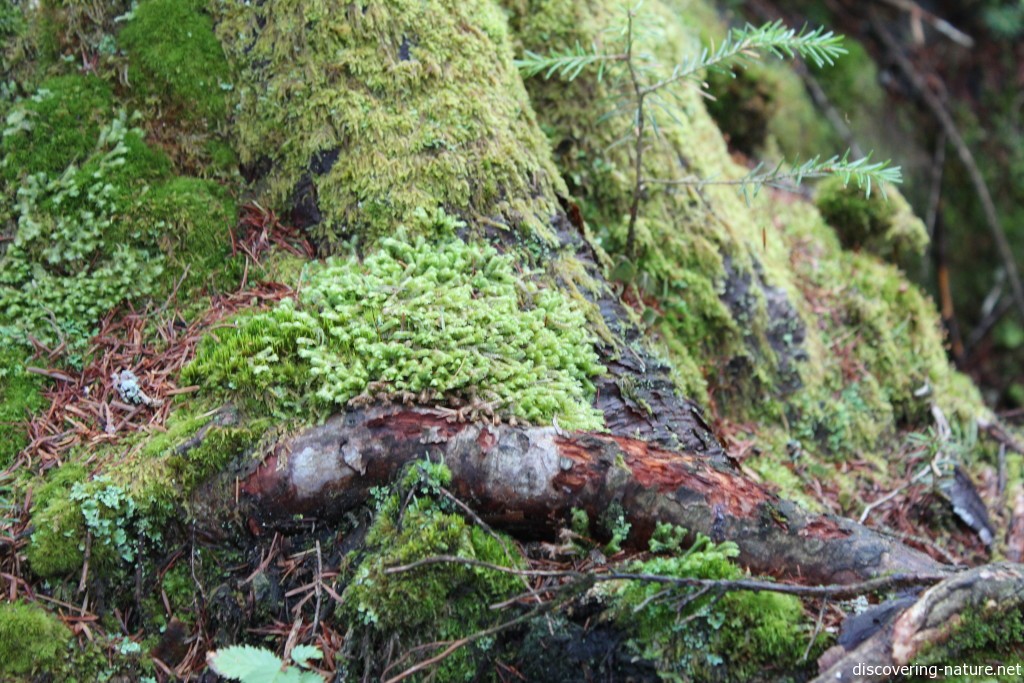
A stump beautifully furred with mosses 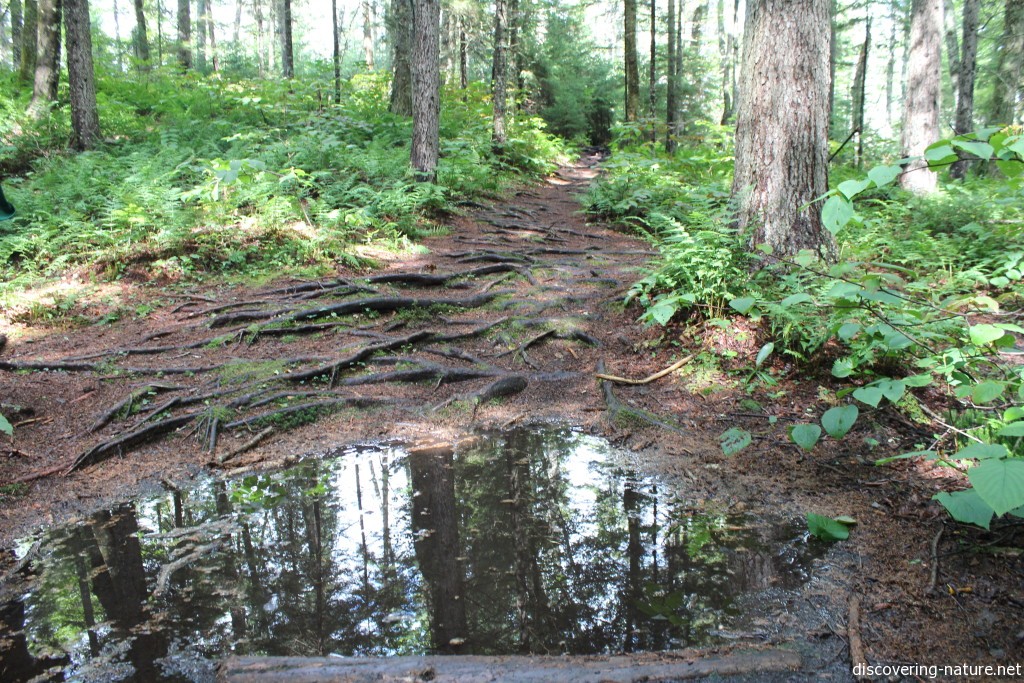
Wood between the worlds 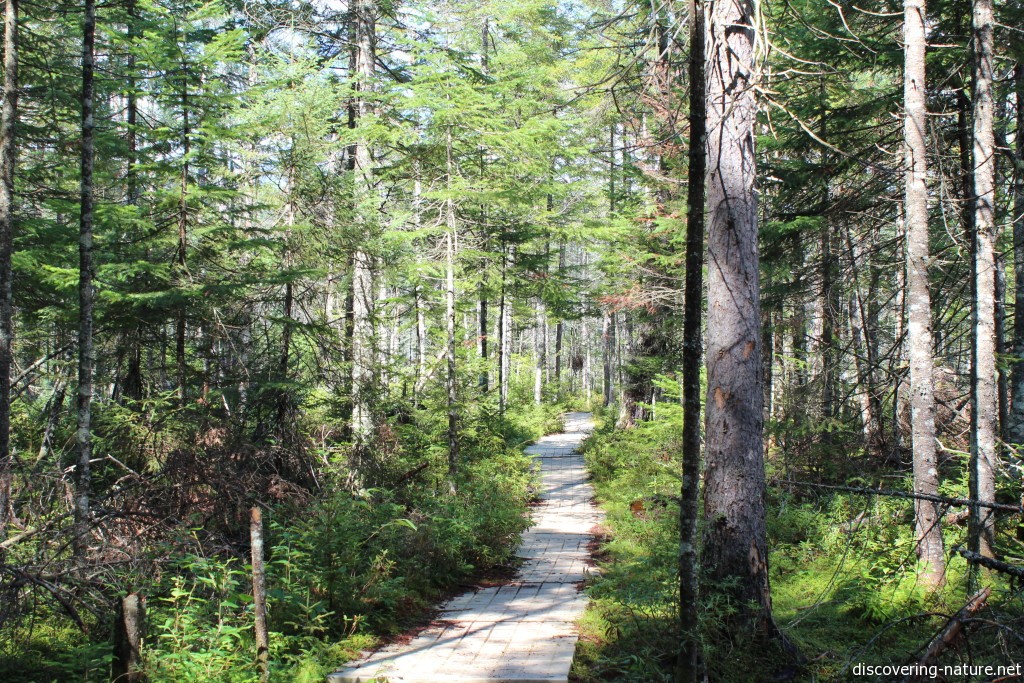
Boardwalk into the open bog 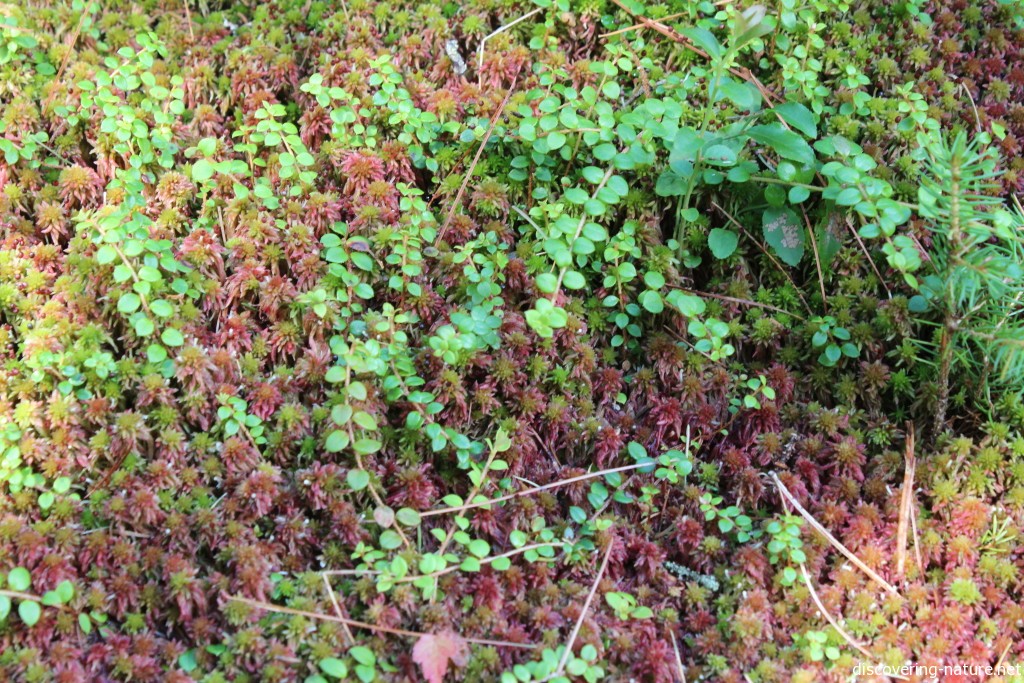
Micro-world 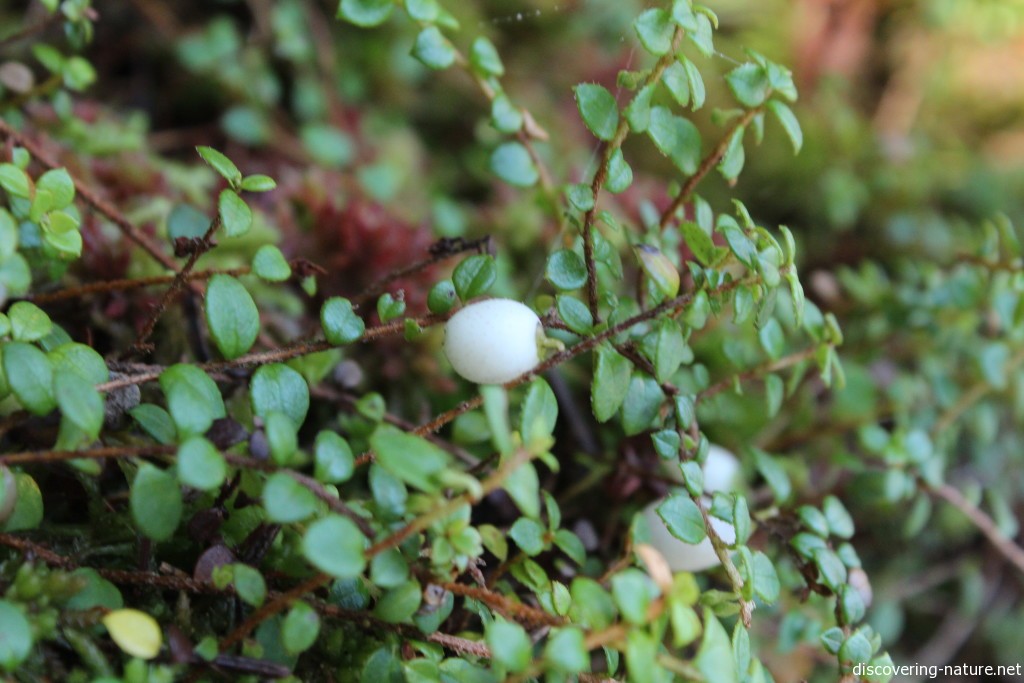
Creeping snowberry 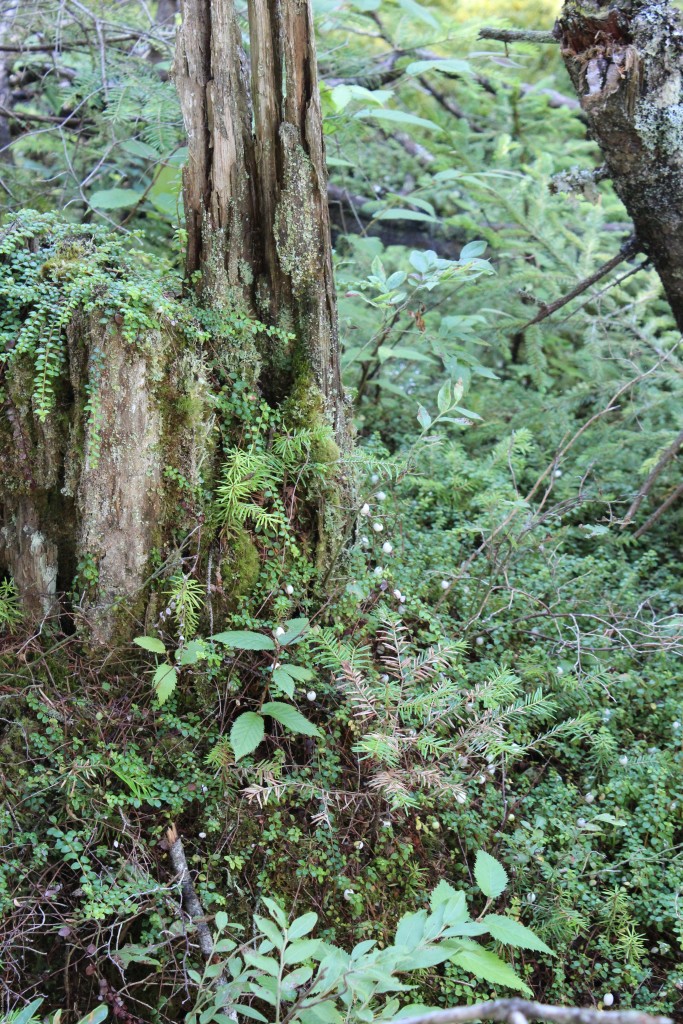
Stump host for all kinds of plants 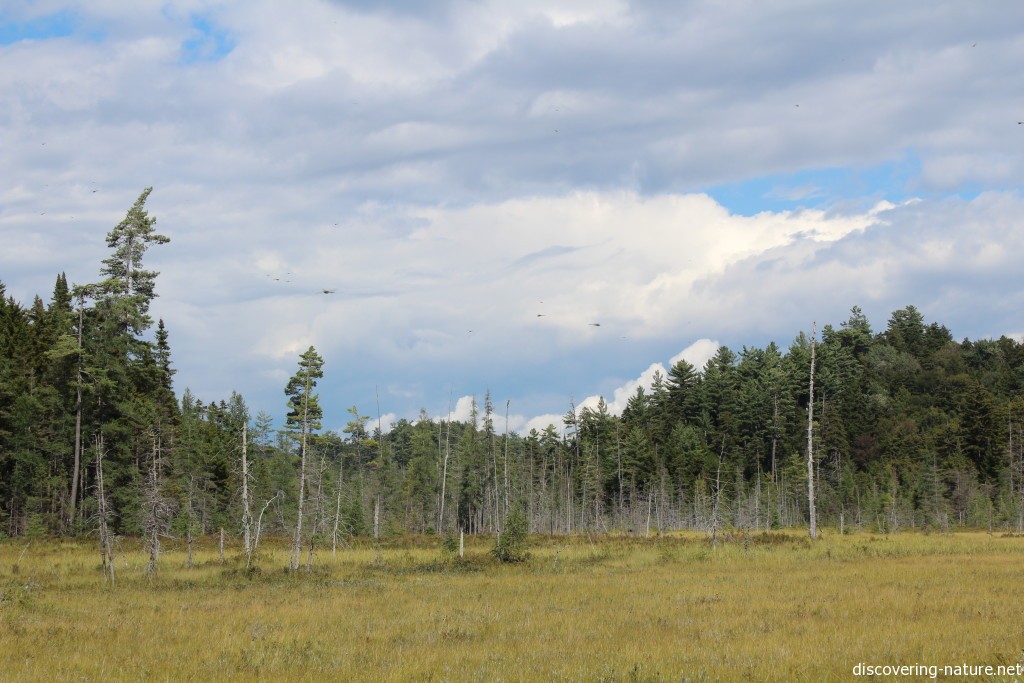
Open bog — the black flecks are dragonflies. The air was thick with them. 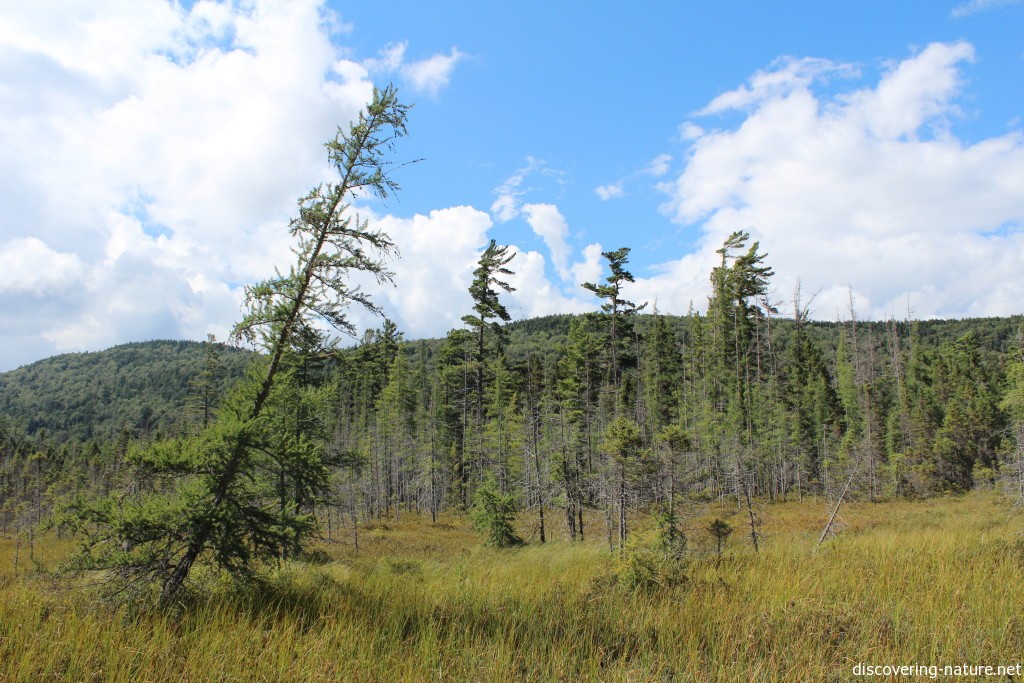
Quietness — no sound but a single white-throated sparrow 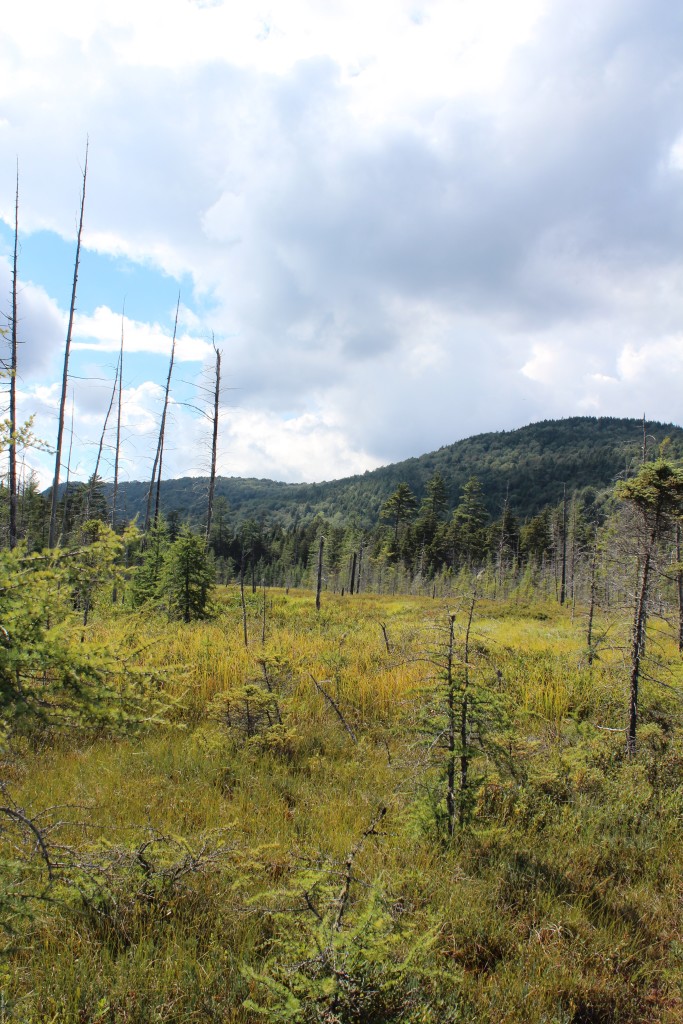
Big sky country 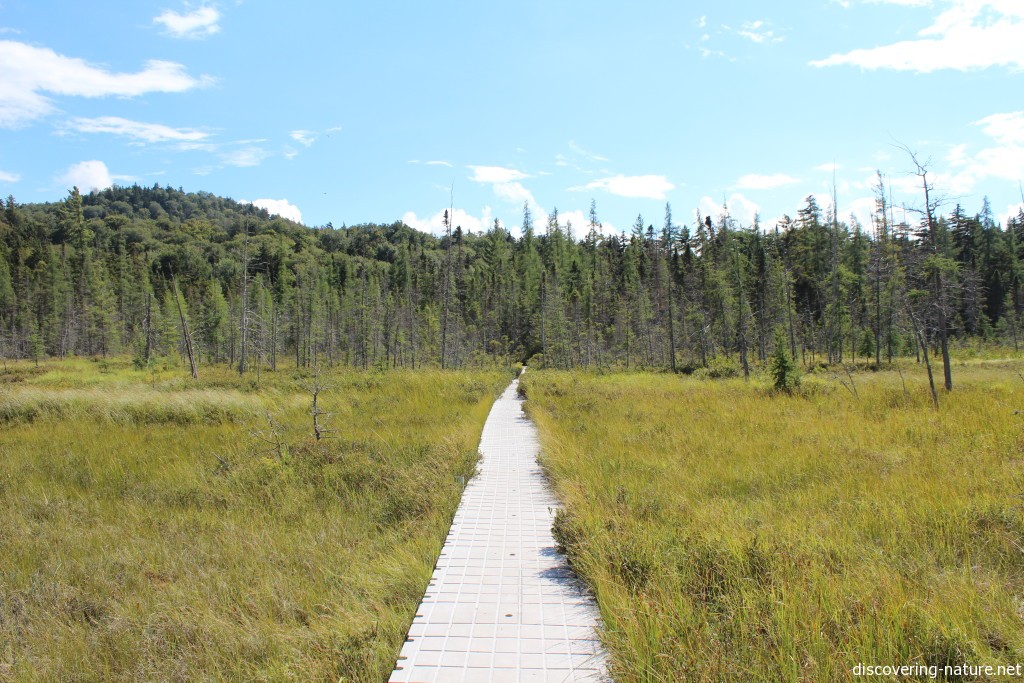
Boardwalk leading back into the woods 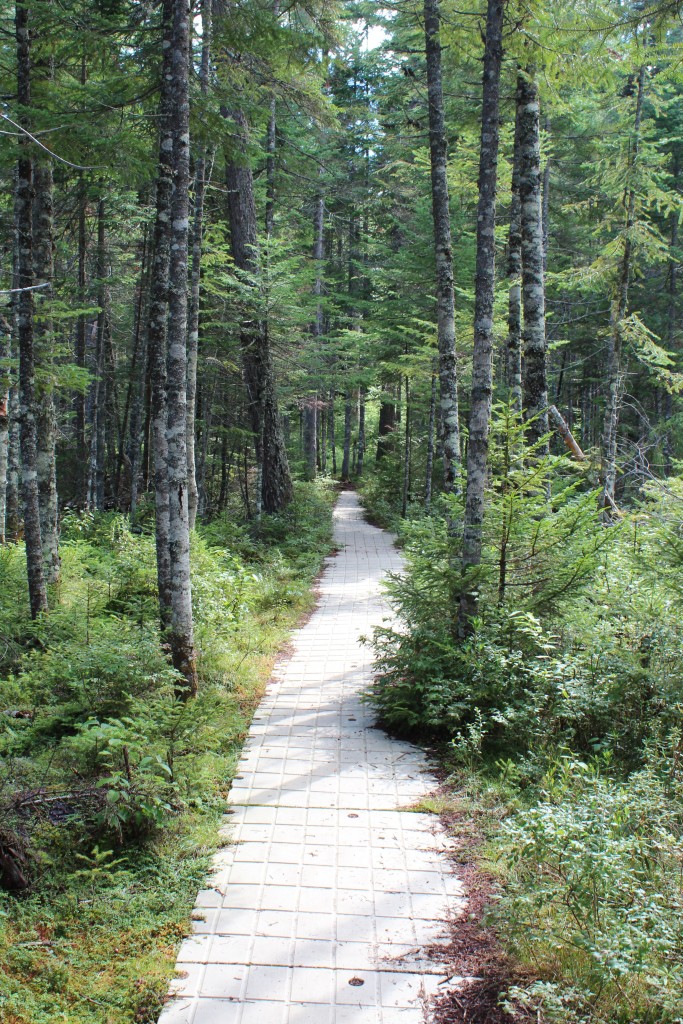
Follow the yellow — er, white — brick road 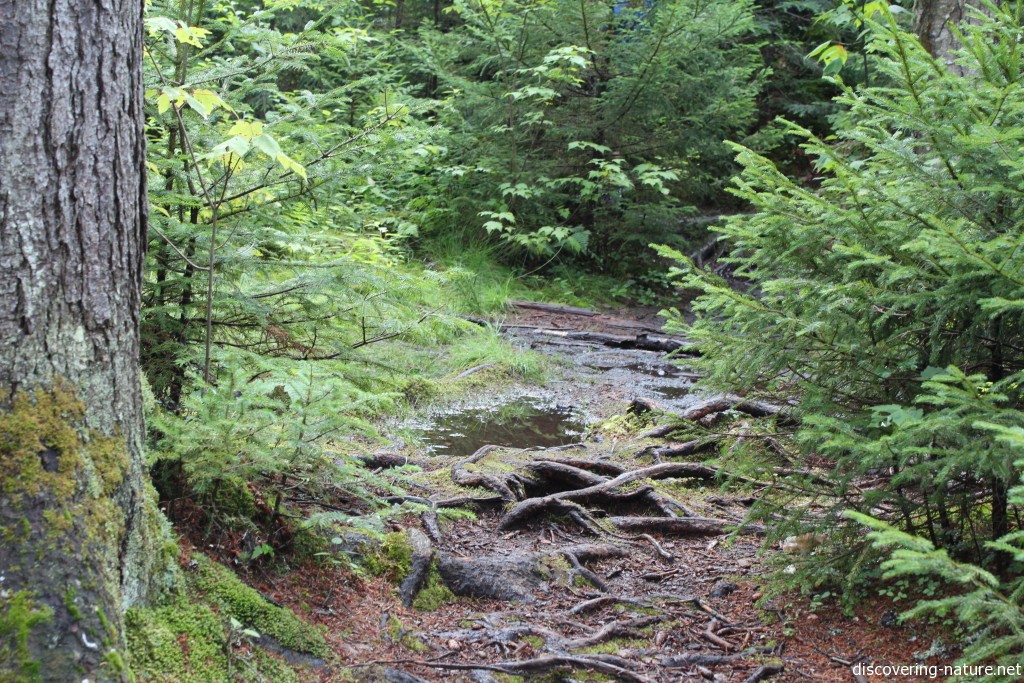
The trail back out 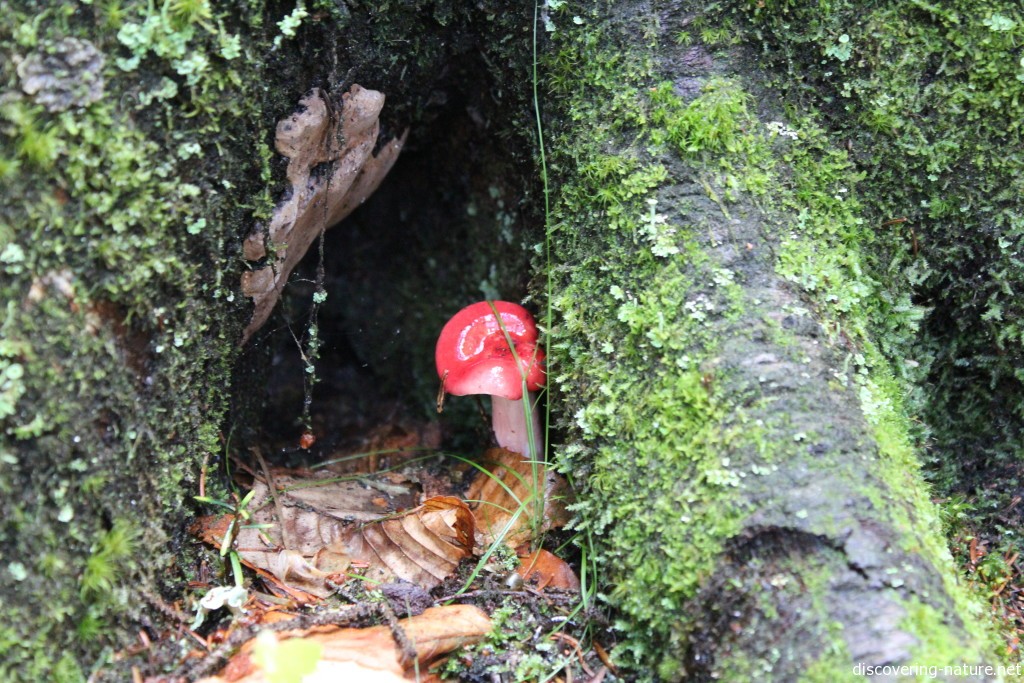
Red toadstool 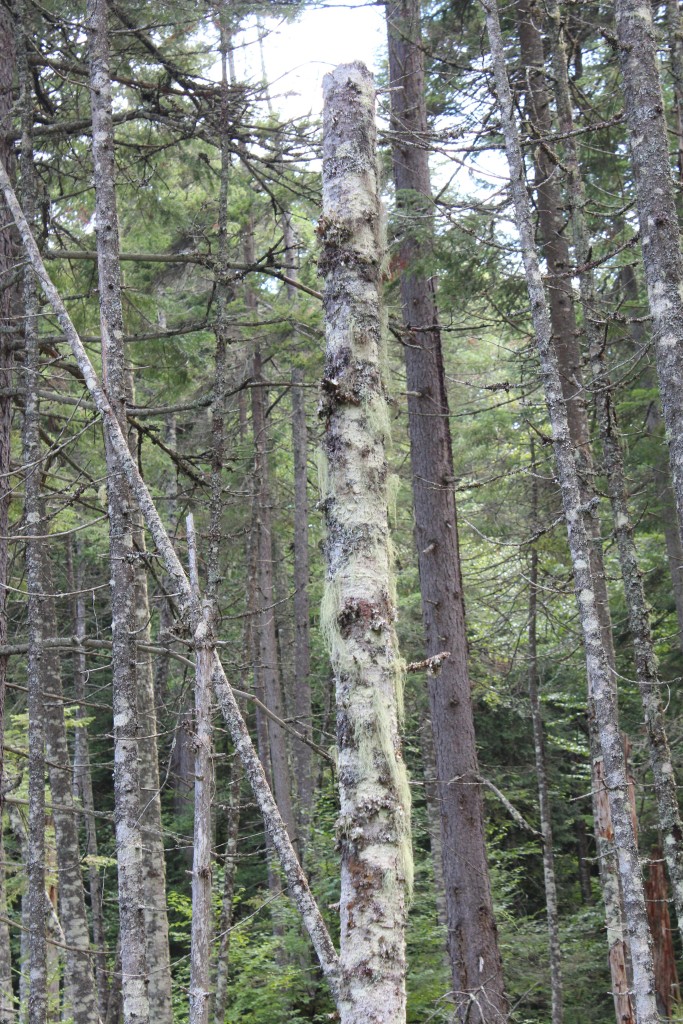
A tree bearded with mosses 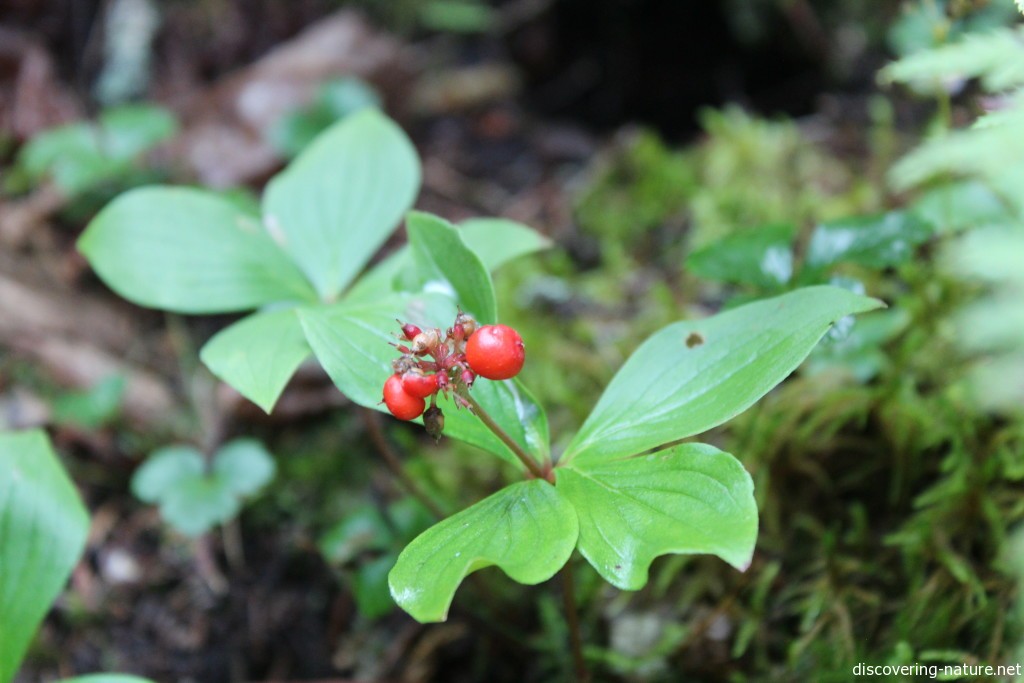
Red berries — not sure what kind 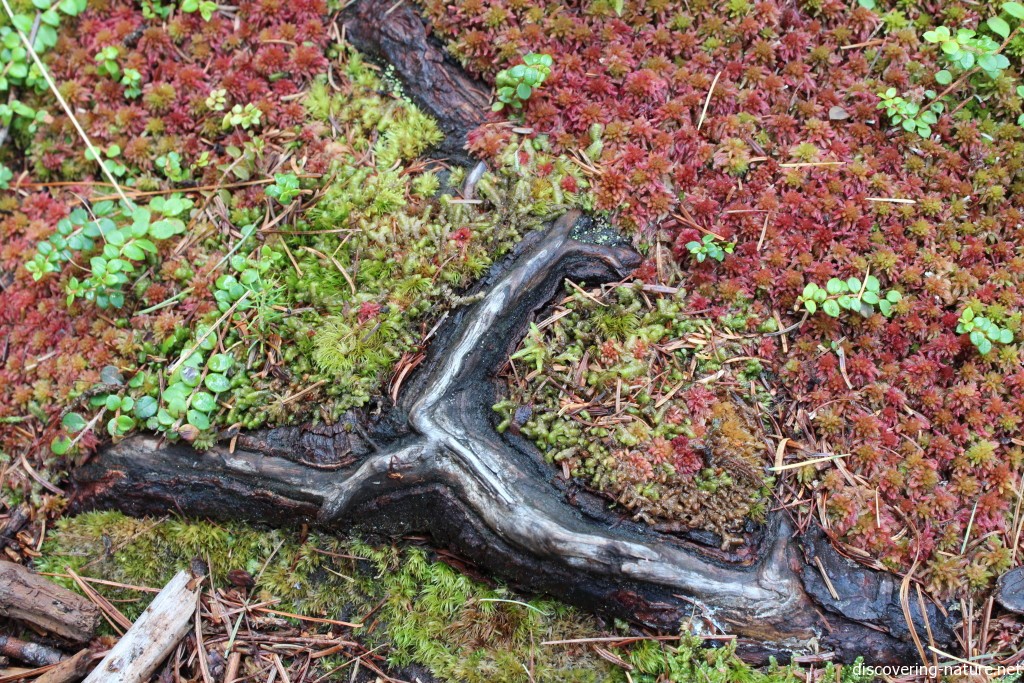
Polished roots 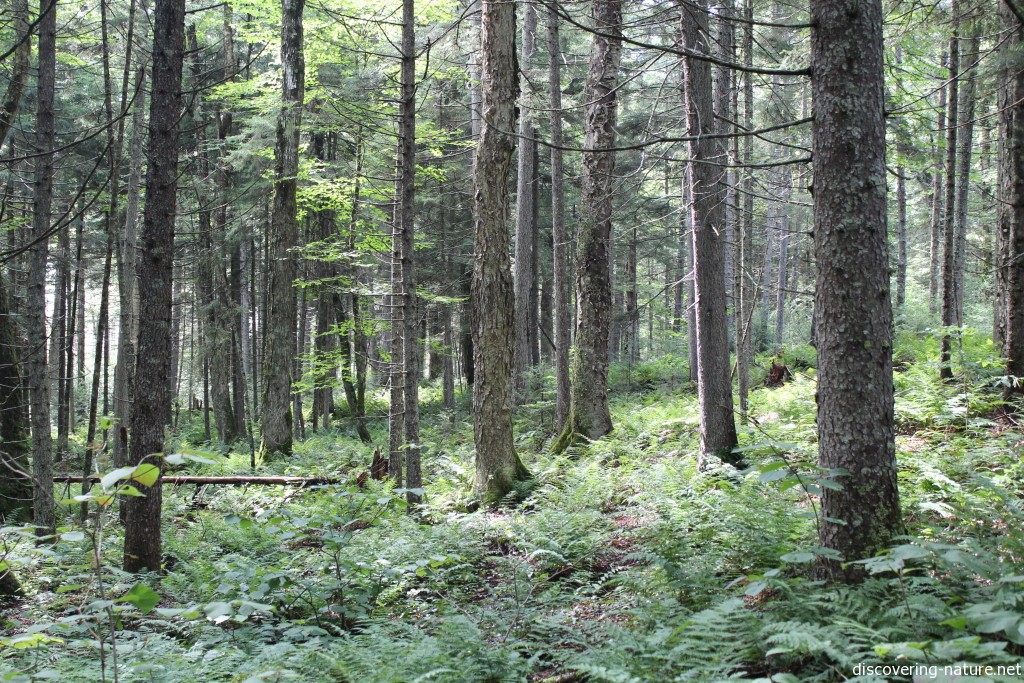
Evergreens 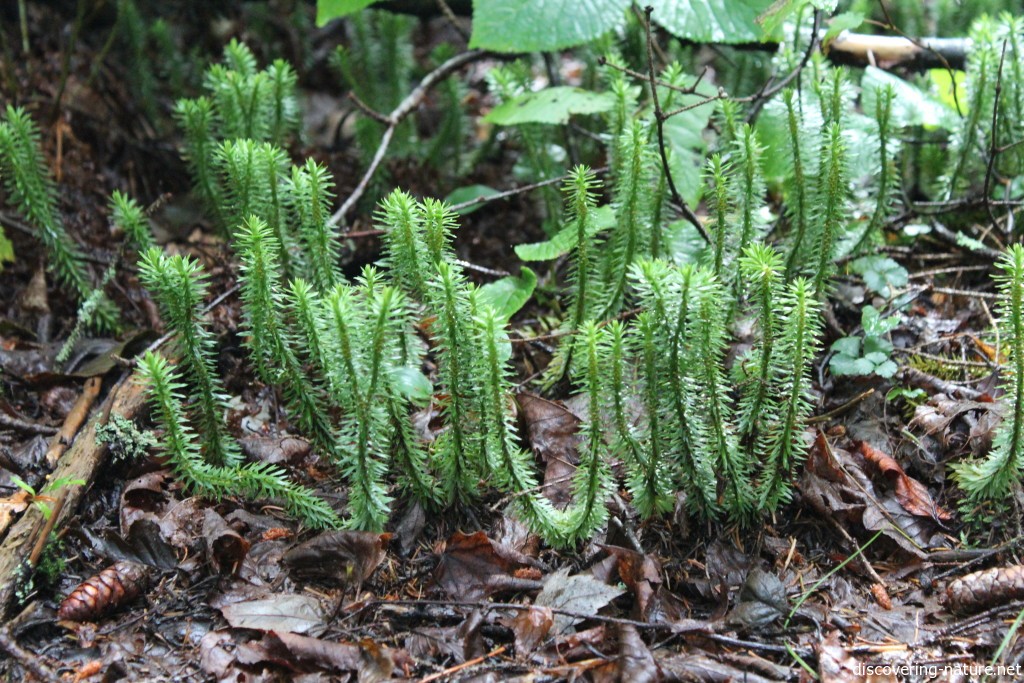
Baby evergreens 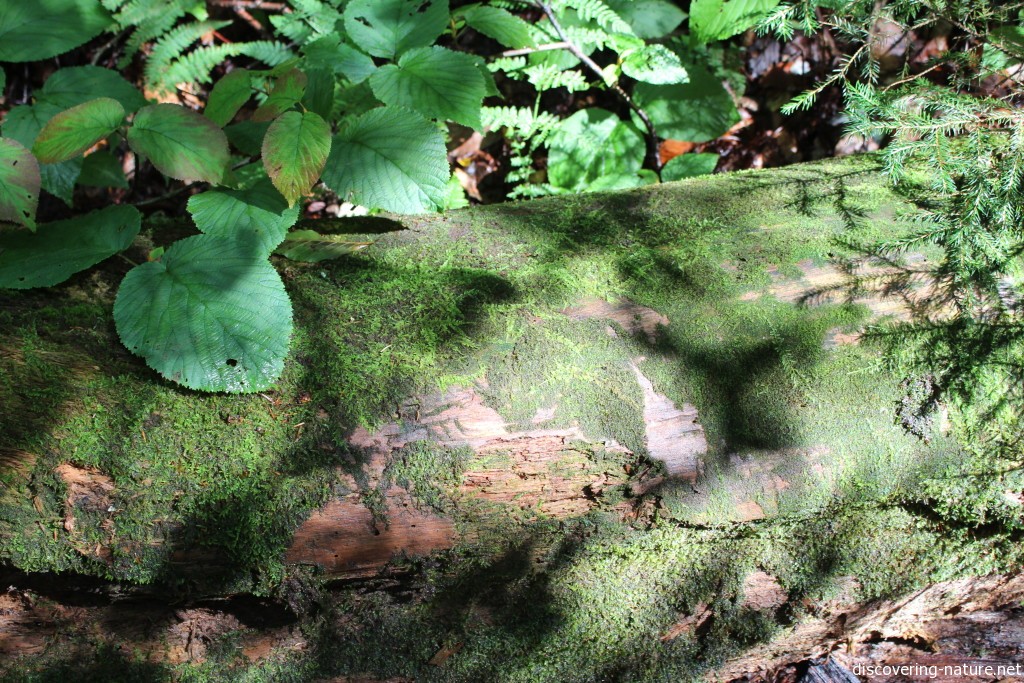
Log overtaken with other plants 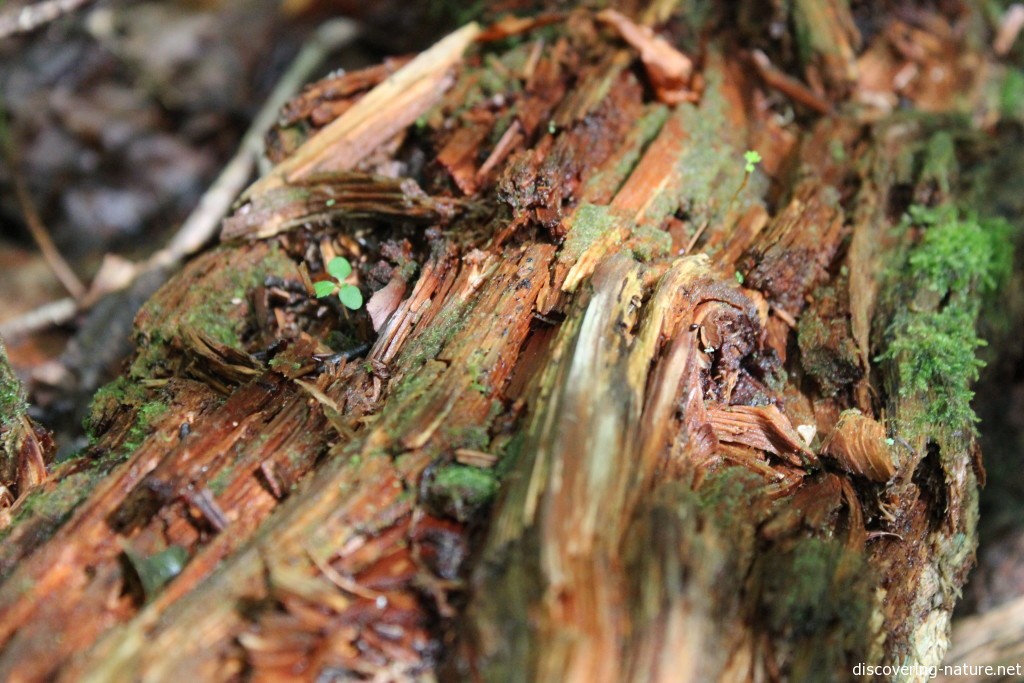
Decomposition 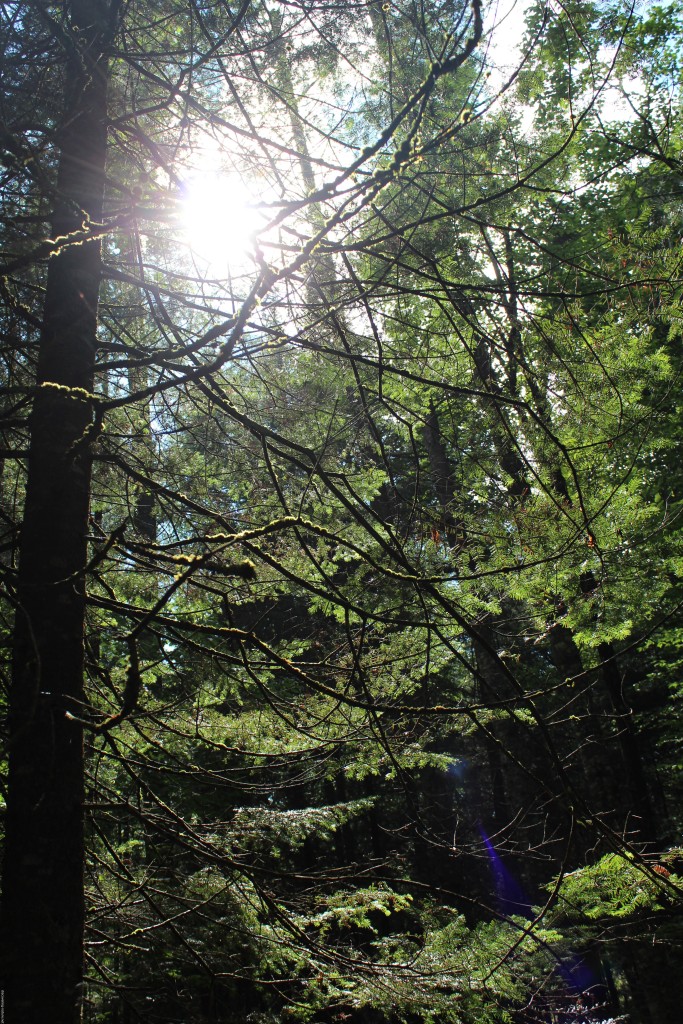
Woodland benediction Some pics of Ferd’s Bog from last year are included here. Some from the year before are here.
-
Brave blooms and a spring stream
They look like they’ve just arrived from someplace warmer, a small group of tourists looking hopefully around for accommodations.
Then there’s this one, growing in a tiny stream. Bloom where you’re planted.
We enjoyed the gorgeous glen on a sunny day. The joyous spring sound of rushing water was everywhere.
Wet-loving plants and mosses adorned the shale walls and dead trees.
I was taken with the sense of heights as we walked down the streambed. Everywhere, the steep banks invited us to look upward toward the sun.
The contrast between light and dimness caught my attention. So did the contrast between beauty and violence. You can’t get a stream picture that doesn’t include trees fallen down steep banks, broken and rotting — or great stones tumbled who knows how far by the water at its strongest.
Someone had created a space for humans along one part of the bank.
I, along with my daughters, joined in. We left our names there beside a growing number of others.
-
Heroic ages
Thoreau wrote that morning brings back the heroic ages. I find that I’m much less eloquent about my morning walk the other day. I just enjoyed it. I liked the way the boardwalk zig-zagged mysteriously, and how it straightened out like a runway.
Then it was back into curving mystery.
The trees made another avenue along the meadow.
And bits of color from moss and bracket fungus showed a “land down under” that thrives even in a very chilly April when few leaves seem to want to open.
-
Walking
The eastern towhee was back in the lower meadow, calling out at the start of my early morning walk yesterday: “Drink your tea!”
The robins were busy about their breakfast in the dewy grass.
As I walked, I felt a little dejected that neither of my daughters had taken the opportunity to come along. But it didn’t take long to recognize that in fact I was having a very good time being completely alone.
I thought about a meditation I’d heard recently on the idea that any human artistry has to begin with what’s already created — therefore it has to begin with gratitude. I thought about how I was walking through a work of art, and I did feel grateful.
I’ve said I was alone. Not entirely. I prayed, and so that level of conversation affirmed a companionship. There were plenty of sounds and critters to testify to the community of wild things around me, too: chickadees, kinglets, woodpeckers, chipmunks and squirrels, a ruffed grouse making its sound of a dribbling basketball off in the distance.
My favorite parts were the times I stood still and waited. In one of those listening times, a silent, shivering oven bird showed herself.
A little farther along and I reached a favorite spot. The green along this stream, and the glittering reflections, invited me to linger and think.
A short climb, and I reached the upper meadow.
More birds here, including flickers…
…and many a chattering goldfinch.
This demure song sparrow rustled quietly in a bush next to me.
And a rabbit briefly considered whether I was to be trusted before beating a hasty retreat.
I was thinking about developments in my life — decisions made, attitudes held — when I turned around to survey the view behind me and saw what seemed a perfect picture of Frost’s “Road Not Taken“:
TWO roads diverged in a yellow wood,
And sorry I could not travel both
And be one traveler, long I stood
And looked down one as far as I could
To where it bent in the undergrowth;Then took the other, as just as fair,
And having perhaps the better claim,
Because it was grassy and wanted wear;
Though as for that the passing there
Had worn them really about the same,And both that morning equally lay
In leaves no step had trodden black.
Oh, I kept the first for another day!
Yet knowing how way leads on to way,
I doubted if I should ever come back.I shall be telling this with a sigh
Somewhere ages and ages hence:
Two roads diverged in a wood, and I—
I took the one less traveled by,
And that has made all the difference.The poem’s last two lines are the ones usually quoted, but they are really spoken tongue-in-cheek. The speaker has just told us that he had trouble deciding which path to take because both were worn “about the same.” The difference was slight. But he knew he’d look back and try to read more significance into the choice he’d made. In any case it seemed a fitting sight, and a fitting allusion, just at that moment. I’d already passed both “roads” and was looking back, as the poem does.
Thoreau says (in “Walking”) that a person has no business walking if they are preoccupied with their thoughts:
…it sometimes happens that I cannot easily shake off the village. The thought of some work will run in my head, and I am not where my body is; I am out of my senses. In my walks I would fain return to my senses. What business have I in the woods, if I am thinking of something out of the woods?
I was guilty of this. Yet there was much, still, that I noticed and enjoyed. There is something about knowing that life independent of me is busy all around that sets me free from trying to keep track of everything, and allows me to hear the inner voice. I thoroughly enjoyed it. I stayed out for several hours — almost long enough to grow moss and lichen, like some of the trees.
-
Sights and sounds of spring
It was 27 degrees when we got up this morning, but the sky was blue and it was destined to warm up into the seventies. Who wouldn’t take a walk?
Today it was more about sounds than sights: tiny rustlings that turned out to be kinglets, squirrels, cardinals or chipmunks. A distant woodpecker. A faraway wood thrush. The vigorous sound of running water in the thawed creek. I did see some deer, but only for a split second before they fled.
Then I saw a pair of quiet, elusive birds. I wanted to sit still and see if they’d come closer, and behold, there was an inviting bench just to the side of the trail.
It just happened to be near the tree where I got to watch some nesting chickadees a couple of years ago…
It won’t happen again — not in that tree. It was lying beside the trail, fallen over the winter.
But it was neat to get to see the inside of their home. The top of the tree had broken off so the soft nest cavity was visible. I also admired their wall decor.
Finally the other birds came close enough to see. There’s a chance they were oven birds, but I’m pretty sure they were veery. They made no sound so I couldn’t confirm by their voices. But I enjoyed the way they accepted my being there as they hopped around flipping over leaves and looking for breakfast. They’re birds more often heard than seen, so it was a treat.
When I got home we had more excitement: a redtail rose out of the brush beyond our house. A moment later, the leucistic redtail rose up too, and we saw its blazing whiteness as it circled high into the air. We ran outside in our socks to watch, and discovered there was a third redtail — which the white one chased, screaming and seeming to collide with it. It chased it three or four miles away and then turned, tucked its wings, and sped back at incredible speed. What would have been a ten minute drive took about 15 seconds. I guessed it was a male, defending its nesting territory and and its mate.
I got some awesome pictures, but you’ll have to take my word for it, because after I had excitedly snapped them I got inside and my camera informed me there was no card inserted. I had taken it out to download the pics from my walk! None of my pictures were saved.
Fortunately my daughter got a few pics with her point and shoot, and she says it’s okay if I share them.
It was an amazing sight! I’m hoping for another chance — but meantime, it’s thrilling to have the memory.
-
Spring Thaw
It was in the 60’s, the snow was melting, and the sun was out. We decided to head out and see what the woods looked like on such a welcome spring day.
A stop at the vernal pool didn’t seem like it would be too promising. But despite the ice…
…I saw the first tadpole of the year.
There’s something incongruous about the stealth of such a plump fellow darting along in his underwater world. I was glad to see him.
He wasn’t the only one enjoying the water. A big snapping turtle was floating on the pond, bleary-eyed. There were many ducks around the area, and I wondered if they realized he was there. I wouldn’t want to be anywhere near him if I was a duck.
We took our dog Lucy. She had a blast, of course.
We certainly appreciated her supervision playing in the stream. Where would we be without someone to catch every splash?
But I felt an unexpected sadness, remembering how our old dog, Katie, who died over a year ago, used to love coming here too. I remembered how we had to leave her at home toward the end because she was so unwell, and she’d stand at the back window and watch us drive away. Memories are a part of these familiar places. Rest in peace, Katie.
We needed the warmth and sun, and we saw a number of other people out and about in the woods too. All of us are ready for the snow to be gone — even though it means the season of mud begins. It was good to be out and feel the balminess and promise of spring.
-
Tracks
Winter reveals secrets: nests hidden in summer, wasp nests, holes in the ground no longer covered by long grass.
And tracks. Especially along frozen streams.
Today in this spot we saw what must have been muskrat tracks — small feet with a tail-dragging mark between. They came up over the edge of the bank, meandered in a circle on the grass, then dropped back over the bank. There was a little dirt slide that led right down into one of those slats between sheets of ice and the bank.
These tracks suggest a squirrel and a crow taking a walk together, but probably the crow came later.
I once watched a squirrel carefully bury a nut in our back yard. Just after he left a crow landed, dug it up, and carried it away. I think the crows watch for the squirrels and investigate.
We saw several of these spots today, where crows had landed and dug at something. There were some dried seed pods around, so maybe that’s what they were after.
Mouse trails show up well too. They must hop pretty high to leave such perfect imprints, complete with little tail marks.
Then there are the tracks left by juvenile homo sapiens — my kids, who like to write in the snow with sticks.
Winter crop circles. Or Nazca lines. We humans, unlike all these tough little barefoot animals, have the luxury of boots and can make gratuitous marks in the snow. Maybe next time we can draw something spectacular. Till then it’s the tried and true.
-
Winter trails
-
Winter’s understatement
These pictures were actually taken back in December — I just haven’t gotten around to posting them. They capture a beauty unique to winter with its pristine paleness.
The frost seems to emphasize the outlines of things, from grass to dead leaves. And somehow, the reflections seem sharper.
Textures and colors stand out in a way that fails to attract attention in the green busyness of summer.
I know it was December, but what I think of is John Updike’s poem about November extolling “the beauty of the bone.” Winter lasts longer than I’d like where I live, but it does something for me.
